31 Best Medical schools in Sweden
Updated: February 29, 2024
- Art & Design
- Computer Science
- Engineering
- Environmental Science
- Liberal Arts & Social Sciences
- Mathematics
Below is a list of best universities in Sweden ranked based on their research performance in Medicine. A graph of 20.1M citations received by 579K academic papers made by 31 universities in Sweden was used to calculate publications' ratings, which then were adjusted for release dates and added to final scores.
We don't distinguish between undergraduate and graduate programs nor do we adjust for current majors offered. You can find information about granted degrees on a university page but always double-check with the university website.

1. Karolinska Institute
For Medicine
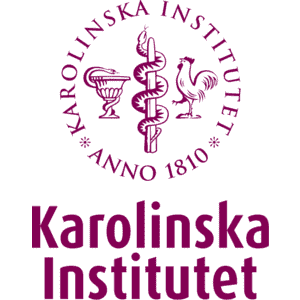
2. Lund University

3. University of Gothenburg
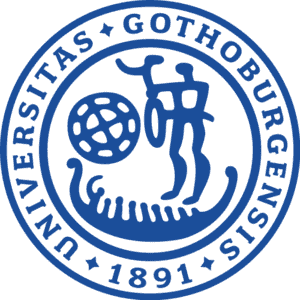
4. Uppsala University
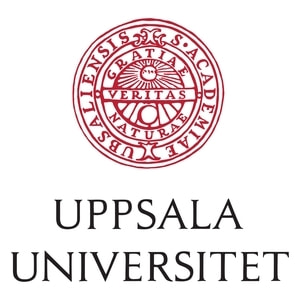
5. Umea University

6. Linkoping University
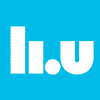
7. Stockholm University
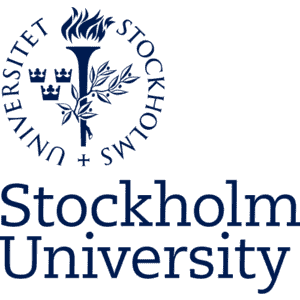
8. Swedish University of Agricultural Sciences

9. KTH Royal Institute of Technology
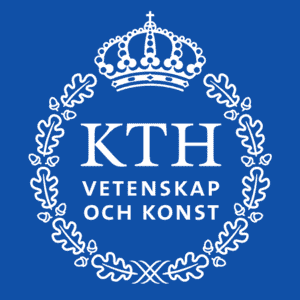
10. Chalmers University of Technology

11. Orebro University
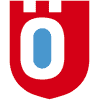
12. Malmo University

13. Lulea University of Technology

14. Jonkoping University

15. Linnaeus University
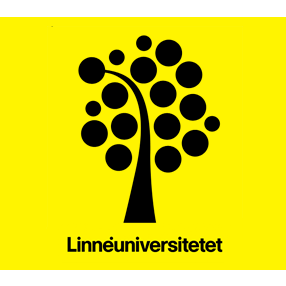
16. Mid Sweden University

17. Karlstad University
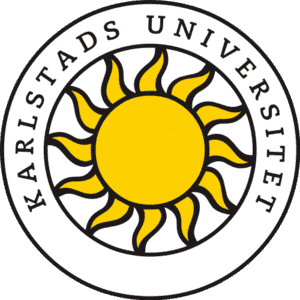
18. Boras University College
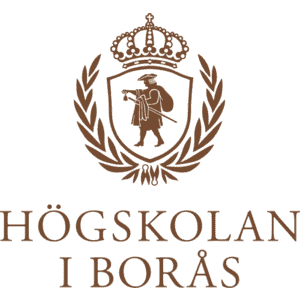
19. Stockholm School of Economics
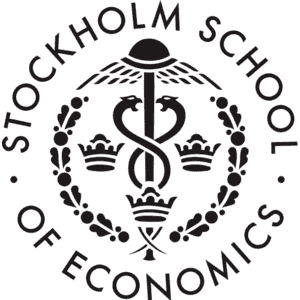
20. Kristianstad University College

21. Halmstad University
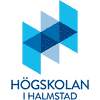
22. Malardalen University

23. Dalarna University
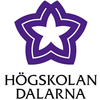
24. University of Skovde
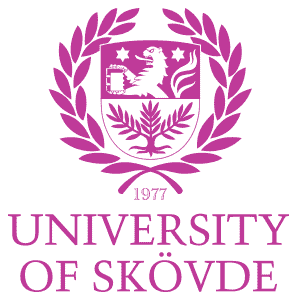
25. Blekinge Institute of Technology
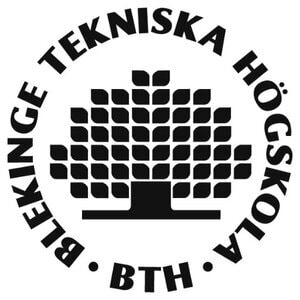
26. Sodertorn University College

27. University College West
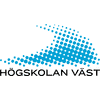
28. Ersta Skondal Bracke University College
29. sophiahemmet university college.
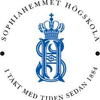
30. Red Cross University College
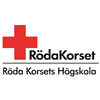
31. World Maritime University

The best cities to study Medicine in Sweden based on the number of universities and their ranks are Stockholm , Lund , Gothenburg , and Uppsala .
Medicine subfields in Sweden

Subscribe to our newsletter to receive scholarships information!
- Undergraduate Courses
- Master’s Courses
- MBA Courses
- View Courses by All Degrees
- Business Courses
- Chemistry Courses
- Computer Science Courses
- Data Science Courses
- Design Courses
- Engineering Courses
- Environmental Sustainability Courses
- Marketing Courses
- Law Courses
- Psychology Courses
- View Courses for All Subjects
- Canada Courses
- Europe Courses
- Germany Courses
- Japan Courses
- United Kingdom Courses
- United States Courses
- View Courses for All Countries
- Bachelor’s Scholarships
- Master’s Scholarships
- Ph.D. Scholarships
- View Scholarships for All Degrees
- Australia Scholarships
- Canada Scholarships
- Ireland Scholarships
- Japan Scholarships
- South Korea Scholarships
- United States Scholarships
- United Kingdom Scholarships
- View Scholarships for All Countries
- Fully Funded Scholarships
- Full Tuition Scholarships
- Partially Funded Scholarships
- View Scholarships for All Types
- Currently Open Scholarships
- Government Scholarships
- External Scholarships
- Currently Open Scholarships in Australia
- Currently Open Scholarships in Canada
- Currently Open Scholarships in South Korea
- Currently Open Scholarships in the United Kingdom
- Currently Open Scholarships in the United States
- View All Currently Open Scholarships
- Lester B. Pearson International Scholarships
- Academic Elite Scholarships
- Reach Oxford Scholarship
- View All Fully Funded Bachelor’s Scholarships
- Graduate Students Research Assistantship
- KAIST Scholarship (Graduate)
- Merit-Based Scholarships
- View All Fully Funded Master’s Scholarships
- Graduate Research Scholarships
- Four Year Doctoral Fellowship (4YF)
- Assistantships
- View All Fully Funded Ph.D. Scholarships
- Harvard University Scholarships
- Yale University Scholarships
- Massachusetts Institute of Technology Scholarships
- University of Toronto Scholarships
- Princeton University Scholarships
- Stanford University Scholarships
- View All University Scholarships
- Fulbright Scholarships
- Australian Government Scholarships
- DAAD Scholarships
- Chevening Scholarships
- Korean Government Scholarships
- Japanese Government Scholarships
- Vanier Scholarships
- View All Government Scholarships
- Harvard University
- Yale University
- Grinnell College
- Colby College
- Indian Nationality
- Pakistani Nationality
- African Nationality
- Nepali Nationality
- Bachelors Scholarships
- USA Scholarships
- UK Scholarships
- Full Funding
- Full Tuition
- Partial Funding
- Filipino Nationality
- Ghanaian Nationality
- Study in Canada
- Study in Norway
- Study in Switzerland
- Study in Hungary
- Study in Italy
- Study in Singapore
- Cheap Universities in USA
- Cheapest Universities in Canada
- Tuition Free Universities in Europe
- Tuition-Free Universities in Germany
- Cheap Universities in Australia
- Cheap Universities in Korea
- Cheap Universities in China
- Cheap Universities in Japan
- United States
- New Zealand
- United Kingdom
- South Korea
- United Arab Emirates
- Czech Republic
- Netherlands
- Canada Student Visa
- United States Student Visa
- Australia Student Visa
- New Zealand Student Visa
- Germany Student Visa
- Korea Student Visa
- China Student Visa
- USA Work Visa
- Canada Work Visa
- Germany Work Visa
- Netherlands Work Visa
- Norway Work Visa
- Ireland Work Visa
- Finland Work Visa
- Denmark Work Visa
- French – DELF/DALF
- German – DSH
- German – TestDaF
- Korean – TOPIK
- Chinese – HSK
- Japanese – JLPT
- Spanish – DELE
- Italian – CELI/CILS
- Personal College Essay
- Why This College Essay
- Scholarship Resume
- Personal Statement
- Recommendation Letter
- Creative Portfolio
- Scholarship Admissions FAQs
- Universities with No Application Fees
- Talk to a Counselor
- Partner with Us
- Promote Your Courses
- Newsletter Signup
- Privacy Policy
13 Best Medical Schools in Sweden
One of the most common problems for international students is the language barrier. And such is the case for foreign nationals in Sweden, where all medical programs are in Swedish. Although most Swedish people speak English, and Sweden even ranked 2nd out of 80 non-native English-speaking countries in EF English Proficiency Index. In this article, we will be looking at the best medical schools in Sweden.
Medical schools in Sweden are also compliant with the Bologna process and European Credit Transfer and Accumulation System, which means the medical degree they grant is valid in any European country.
Top Medical Schools in Sweden
1. karolinska institute.
- Study Program | Tuition Fees | Scholarships
Started in 1810 as an academy for the training of skilled army surgeons, Karolinska Institute is the best medical school in Sweden. It is also the country’s center for academic research and home to the Nobel Assembly, which has the full right to evaluate and select the Nobel Prize awardees in Physiology or Medicine.
Karolinska Institute currently has the most extensive range of medical programs and courses offered in the country and is one of the leading medical universities worldwide. The medical programs taught in Karolinska are entirely Swedish. As such, proficiency of Swedish 3 plus English 6 and other entry documents is part of the admission requirements.
2. Lund University
Lund University is one of the oldest schools in Northern Europe, founded in 1666. It is a public school that grew to become one of Sweden’s leading medical schools. It consistently ranks in the top 100 schools worldwide in a variety of programs which includes medicine. Medicine in Lund lasts up to 5.5 years, consisting of eleven semesters.
The first five years are problem-based learning that tests students’ practical knowledge, occurring in different hospitals every three semesters. The requirements to be admitted as a medical student is similar to Karolinska Institute since they both have medical programs in the Swedish language.
3. Uppsala University
Established in 1477 and known as the oldest university in all Nordic countries, Uppsala University offers two ways to get a Medicine degree. The university values choice and independence. Accordingly, students are free to tailor their unique program by choosing a combination of independent courses that suit their tastes except for programs that will lead to a professional degree and internship. It is also a great choice if you prefer the class environment.
4. University of Gothenburg
The University of Gothenburg , one of the best medical universities in Sweden, is at the heart of the second-largest city in the country. Founded in 1891 in Gothenburg, it is a public and city university with a multidisciplinary academic offering. It is also one of the largest universities in the Nordic countries. Sahlgrenska Academy, the faculty of medicine of the university, prides itself on its successful research advancements.
Its most notable studies include aging, cancer, metabolism, neuroscience, obstetrics, odontology, vaccines, and virology. Proficiency in the Swedish language is still required to study medical courses, and it can be learned for free in the university by enrolling in their Swedish language courses.
5. Umea University
Known as the fifth oldest university in the country and for its research of genomes and its Institute of Design, Umea University – Faculty of Medicine offers education and research in medicine, odontology, and health care, from tiny microbes to risk factors of the whole population. The faculty boasts successful research in the cure for diabetes and the advancement of knowledge about prostate cancer. Umea University welcomes international students to study medicine in the university as its medical program’s language of instruction is English.
6. Linköping University
Linköping University has a history that dates back to 1975. It initially offered courses in Industrial Engineering and Management and Applied Physics and Electrical Engineering; it was only after a few more years that Health Sciences began in this top medical school in Sweden. Linköping University was the first Sweden university to introduce a radical yet practical teaching method called Problem-Based Learning that stimulates students’ development of professional competence and independence in learning. This new philosophy resulted in the first university students being allowed to practice medicine on an actual patient on health wards.
7. Orebro University
Orebro University began its service in 1999 after the Uppsala University branch in Örebro, the College of Physical Education and Sport Science, the College of Social Science, and Preschool Teaching Seminary merged in 1977. However, the university only had the power to pide a medicine degree in 2010. Despite having only ten years of clinical education, Obrero University offers one of the best medical programs in Sweden, with the pursuit of Bildung at its center.
See Also: Cheap Universities in Sweden
8. Malmo University
- Study Program | Tuition Fees | Scholarships
Malmo University is a young public medical university in Sweden established in 1998. Located in Malmo, the university contributed to the formation of the town into a center of learning. Aside from its high-quality medical education, the university is also involved in interdisciplinary researches in biomedical sciences. Malmo University also values internationalization at its core, manifested in its high acceptance of international students and partnership with international medical institutions.
9. Stockholm University
Another Swedish university that offers top-notch medical programs is Stockholm University . It was established in 1878 and is centered in and around Stockholm. The university offers education at all levels, including bachelor’s, master’s, and doctorate degrees. It provides an array of programs and courses to aid students in expanding their knowledge in order to pursue a career in medicine. Several programs are taught entirely in English, while some are lectured in both Swedish and English.
The university provides Master’s programs in Medical Physics, Microbiology, and Machine Learning and guarantees an opportunity to develop knowledge about learning processes, both at the individual and organizational level and thus contribute to a better quality of life for students who are interested in pursuing health professions.
A few Ph.D. programs and the majority of medical master’s programs are available to help future healthcare experts adapt to the rapidly advancing technological landscape of modern healthcare. The faculty there is the perfect fit to provide both an in-depth understanding of basic medicine’s impacts and the advanced medical models that are required.
10. Jonkoping University
The School of Health and Welfare at Jonkoping University , established in 1977, is renowned for its premier education and research in the area of health sciences. In all aspects of education and research, the school places a significant emphasis on international collaboration. To preserve and enhance both individual and population health, the school spans its network across all continents.
The school’s programs consistently earn top ratings in national assessments and are praised in the media as shining examples of excellence. The school provides access to a flexible learning environment where one can earn course credits from anywhere in the world. Health care, social work teaching, and research are the main areas of emphasis at the School of Health and Welfare. The school provides a stimulating academic setting where students develop and enhance their capabilities and skills that will prepare them for their future careers.
11. University of Skovde
The University of Skovde , founded in 1977, is another outstanding medical school in Sweden. It is a cutting-edge, hospitable institution that offers top-notch instruction and globally competitive research. The School of Bioscience and Health Science conducts research and education at a high level that meets worldwide standards. On a national as well as an international level, the school has established relationships in the areas of education and research.
The international Bachelor in Biomedicine Study Program is delivered entirely in English. Students receive a well-rounded education from the curriculum, which includes instruction in chemistry, medical biochemistry, cell and human biology, anatomy, genetics, immunology, microbiology, molecular biology, pharmacology, and the biological causes of illnesses.
The interdisciplinary Master’s program in Bioinformatics blends biology with IT tools from computer science. Large biological datasets will be processed, arranged, and analyzed by the students, giving them the chance to add to their current understanding of disease development and patient response to medicinal therapies. Depending on their course of study and specialization, international students have a variety of medical options to choose from.
12. Mid Sweden University
Mid Sweden University , founded in 1993, has a vibrant and welcoming environment where individuals may come together, find inspiration, and develop fresh perspectives. The university serves as a hub for learning, collaboration, and fresh concepts as the community comprises numerous knowledgeable and enthusiastic students, both from Sweden and from other nations.
Its campuses, which are located in Sundsvall and Ostersund, respectively, provide a wide range of academic opportunities, including medical research. The university, one of the respected institutions in Sweden, provides a selection of excellent English-taught worldwide medical science programs. The Master by Research in Chemistry program is designed for individuals who are highly motivated to acquire the skills and knowledge necessary for a future career in public, private, or academic research and development. Also, it’s a great way to prepare for your future Ph.D. studies as the university cooperates with renowned universities and medical institutions to provide the best education for its students.
13. Karlstad University
Since its founding in 1999, Karlstad University has challenged conventional thinking and explored the unknown. To increase the breadth of the students’ knowledge, the institution makes sure there is a positive, welcoming work atmosphere. The university is marked by its accessibility to the community and the strong relationship between research and education. It always encourages values, equality, and diversity and embraces closeness and trust.
The Department of Health Sciences, one of the recognized Swedish medical schools, delivers top-notch instruction and research in a setting that supports professional and student health. The department’s work and growth are defined by the active regional, national, and worldwide collaboration to promote good health. The Graduate School of Health aspires to provide a robust and innovative environment for research education in a more comprehensive context than any other discipline can. The graduate school’s activities aim to improve the standard and substance of supervision and instruction, serve as resources for Ph.D. students, and incorporate study-related social activities.
Knowledge and skills are developed by the learners and educators for personal growth and to support a sustainable society. In addition to the available programs, the university also offers a Master’s in Psychology, a Nursing Specialty, a Dental Hygiene Specialization, and a Bachelor’s Degree in Public Health Sciences.
Learn More About: How to Study in Sweden for Free
FAQs About Studying Medicine in Sweden
Can international students enroll in medical schools in sweden.
It is a Yes from Sweden. Swedish currently caters to thousands of international medical students and remains open for any aspiring high-achiever medical students from around the world. Although medical education in Sweden is only free for Swedish, Nordic, and European Union citizens, international students can still avail themselves of the program for 7,500 – 25,500 EUR/year.
Just note that since Sweden is a rich country, the cost of living may be expensive depending on the region. Once you are sure that you can cover the expenses, here are the basic requirements to start your medical journey in Sweden.
- Completion of secondary/high school
- Submit Transcript of Records from secondary school
- Obtain a residence permit in Sweden
- Meet the special entry requirements in Biology, Chemistry, Mathematics, and other equivalent courses.
- TOEFL/IELTS certification
- Swedish Language Proficiency of at least level 3
- High Swedish scholastic aptitude test scores
- Documentation requirements such as recommendation letter, diploma, passport, and CVs vary according to country.
It is vital to check the University Admission website, which regulates international application to a higher-education institution in Sweden. The website contains information on the complete requirements depending on each country and which document needs translation into Swedish.
Most medical schools in Sweden accept international students like Karolinska Institute, Lund University , Uppsala University , and Gothenburg University .
Check Out: The Cost of Living and Studying in Sweden for International Students
What is the Medical Curriculum Like in Medical Schools in Sweden?
Similar to most EU countries, the candidates can take medical programs in Sweden directly after high school. But unlike any of them, it only lasts for five and half years or 11 semesters in Sweden. As all medical programs are in Swedish, it poses an extra challenge for overseas students.
Nonetheless, it will be all rewarding considering Sweden is home to top schools in the world like Karolinska Institute , which ranks 6th in QS World University Rankings for Medicine. Here is the medical program outline from the same university:
Swedish medical programs offer a unique medical curriculum having multiple modules per semester instead of being organized as studying only a single module for a short period then moving to the next. This design enables students to maximize individual and group studies instead of classroom lectures.
The program has two levels: basic level (1-6 semesters) and advanced level (7-11). The advanced stages primarily occur in teaching hospitals, in which students take part in providing patient care under the supervision of medical professionals.
After graduation, the students are not eligible for a physician license awarded by the National Board of Health and Welfare (Socialstyrelsen) yet, since they only grant it after the mandatory 18-24 months internship in medical hospitals. The students can then opt to practice generally or proceed to a specialization that lasts another five years.
See Also: How to Become a Medical Doctor in Sweden
To summarize everything, medical education and research are of the highest academic caliber and are very important to society. Worldwide accessibility of Swedish healthcare services has a long history. The greatest medical schools in Scandinavia and all of Europe are found in Sweden and its medical programs share many characteristics with those in other nations but also have some differences. According to a global rating of schools as well as specialized educational care, the aforementioned medical schools are the best in Sweden.
We hope this article helped enlighten you in choosing the best medical school in Sweden for you. To know more information like different courses and scholarship opportunities in Europe, check out Europe’s Best Scholarships Page and the Available Programs in Europe for International Students !
About the Author: Hyun Lee
Share this article via
Leave a comment cancel reply.
Save my name, email, and website in this browser for the next time I comment.
Related posts:

Sign up to our Newsletter
Get updates on fully-funded scholarships, currently open scholarships, and more!
You have successfully joined our subscriber list.
Scholarships
© 2024 Global Scholarships Corporation. All Rights Reserved
Sign in to Global Scholarships
7 Best Medical Schools in Sweden for International Students
Besides the fact that Sweden has some of the top medical schools for international students, the country on its own is a wonder to its residents. Let’s start from the fact that they have so much promoted gender equality down to it becoming a norm to seeing fathers pushing prams and sharing coffee while feeding their babies in cafés and parks.
Also, the country has a very healthy work-life balance, no wonder parents in Sweden are entitled to 480 days of paid parental leave when a child is born or adopted.
Moreover, there are the best medical schools in Sweden for international students that are ranked globally. For instance, Karolinska Institutet’s Medicine programme is the 7th best medical programme in the world according to QS World Ranking.
The same applies to medical schools in the Netherlands and Finland .
In this article, we’ll first list some requirements you need before you’re admitted to Sweden medical schools before we now list these schools.
Sweden Medical School Requirements
Medical requirements in Sweden for international students vary from school, and the programme, but here are some basic requirements you’ll see in most of them.
- If you’re enrolling for an undergraduate degree, you must have successfully completed your upper-secondary education
- Or if enrolling for a master’s you must have gotten a bachelor’s degree equivalent to a Swedish bachelor’s degree of 180 ECTS from an internationally recognised university
- Also, you need to be able to demonstrate proficiency in English
- Submission of transcripts from previous academics
- Submission of letters of recommendation
As we said earlier, Sweden Medical School requirements vary, you can visit your aspiring school to learn more.

Medical Schools in Sweden for International Students
1. karolinska institutet.
Karolinska Institutet is one of the world’s foremost medical universities and accounts for the single largest share of all academic medical research conducted in Sweden. KI also offers the country’s broadest range of education in medicine and health sciences, and QS World ranked their Medicine programme as the 7th best in the world , together with other programmes that are still ranked on top.
KI offers medical schools in Sweden taught in English such as;
- Bachelor’s Programme in Biomedicine
- Joint Master’s Programme in Health Informatics
- Master’s Programme in Biomedicine
- Master’s Programme in Global Health
- Master’s Programme in Nutrition Science
- Master’s Programme in Toxicology
- Master’s Programme in Translational Physiology and Pharmacology
Also, this is among the best medical schools in Sweden that gives room to several scholarships and financial aid. They even provide the Karolinska Institutet Global Master’s Scholarships exclusively for international students.
2. Uppsala University
Uppsala University is not just among the medical schools in Sweden for international students, it is also Sweden’s first University.
The school is globally recognised as a leading, first-class university dedicated to advancing science, higher education and international student mobility. Uppsala University offers 12 international master’s programmes in medicine and pharmacy which are taught in English, some of them include;
- Biomedicine
- Global Health
- Forensic Science
- Drug Discovery and Development
- Biopharmaceuticals
They also provide an International Master’s Programme in Innovative Medicine.
3. Lund University
One of the interesting things about studying at Lund University whether as a Swedish Citizen or an international student is that whatever knowledge and discoveries they make in the lab, they transfer directly to the students. Moreover, the school is still globally recognised for its dedication to providing the best education and research work to students. QS World University Rankings by Subject 2022 recently ranked their study of Medicine as one of the top 100 universities in the world .
Lund University offers three international Master’s programmes within the subject area of Medicine and Health, which are; Biomedicine, Public Health, and Medical Science.
4. Linköping University
The Faculty of Medicine and Health Sciences at Linköping University provides International Student Exchange Programs and has exchange agreements with some 400 universities across the globe. These exchange students mostly focus on clinical practice in several medical areas, and the program lasts for 3 months or 13 weeks.
Some of the exchange programmes include;
- Anaesthesiology
- Internal medicine
- Paediatrics
- Dermatology
5. Örebro University
Örebro University is another best medical school in Sweden and the world, and has ranked No. 84 according to The World University Rankings 2022.
The school is among the medical Universities in Sweden for international students that provide both Exchange programmes and a Master’s Programme in Experimental Medicine. Their Master’s Programme in Experimental Medicine is a 2-year degree that offers both broad and specialised knowledge in experimental medicine.
In your second year, you select between one of three profiles: cardiovascular biomedicine, inflammation in health and disease or nutrition-gut-brain interaction
6. University of Gothenburg
Their Institute of Medicine has approximately 700 researchers, doctoral students, teachers and administrative staff. Also, the University of Gothenburg is one of the medical schools in Sweden that teaches two medical programmes in English, which are;
- Master’s programme in Global Health
- Master’s programme in Public Health Science
7. Umeå University
This is among the medical schools in Sweden for international students that offer Master’s programmes, courses and doctoral courses taught entirely in English. Some of their international medical programmes include;
- Master’s Programme in Public Health with a Specialization in Health Economics
- General Curriculum for Doctoral Studies in Medical Science (PhD)
In summary, one of the most interesting things about these med universities in Sweden for international students is that most of them are ranked top in the world in Medicine studies. That means, instead of rushing for other competitive colleges in English-speaking countries like the USA, Canada, and the UK, you can just fight small to be admitted to one of these, and you’ll still get the best education.
Author’s Recommendations
- Best Medical Schools in Cyprus (for Citizens and International Students)
- Free & Cheapest Universities in Europe for International Students for Masters
- Unique Christian Boarding Schools in Canada
- 20 Best Universities in Europe Without IELTS
- 17 Best Christian Schools in UK (Plus their Location and School Fees)
Share this:
Related posts.

9 Best Medical Schools in Ethiopia (2024 Update)

9 Best Medical Schools in Cameroon (2024 Update)

5 Best Medical Schools in Ghana in 2024 (Plus Their Locations)

8 Best Medical Schools in Cyprus (2024 Update)
Leave a comment cancel reply.
Your email address will not be published. Required fields are marked *
Save my name, email, and website in this browser for the next time I comment.
The browser you are using is not supported by this website. All versions of Internet Explorer are no longer supported, either by us or Microsoft (read more here: https://www.microsoft.com/en-us/microsoft-365/windows/end-of-ie-support ).
Please use a modern browser to fully experience our website, such as the newest versions of Edge, Chrome, Firefox or Safari etc.
Medicine and Health
Watch on YouTube: Study Medicine & Health at Lund University
Lund University offers three international Master's programmes within the subject area Medicine and Health. The University was recently ranked as one of the top 100 universities in the world for the study of medicine (QS World University Rankings by Subject 2024). Click on the name in the list below to access the programme webpage where you can read more about the specific programme, find information about the entry requirements, tuition fees and step-by-step instructions on how to apply. You can also download a programme fact sheet directly, using the links below. The fact sheets open in a new window.
Master's programmes in Medicine and Health
- Biomedicine
- Public Health
- Medical Science, several specialisation options*. Please note that this programme is currently paused. Medical Science, fact sheet for all specialisations (PDF, new tab) *The specialisation options are Audiology; Nursing; Occupational Therapy; Physiotherapy; Radiography; Reproductive, Perinatal and Sexual Health (Midwifery); Speech and Language Pathology.
Stand-alone courses on the Master's level (non-degree)
- Cancer Biology
Programmes in other subjects which may interest you
- Biotechnology
- Chemistry, Biochemistry
- Chemistry, Physical Chemistry
- Chemistry, Synthetic and Analytical Chemistry
- Disaster Risk Management and Climate Change Adaption
- Food Technology and Nutrition
- International Development and Management
- General Molecular Biology
- Molecular Biology, Immunology and Infection Biology
- Molecular Biology, Microbiology and Biotechnology
- Molecular Biology, Molecular Genetics and Biotechnology
Bachelor's programmes in Medicine and Health
Studying at the faculty of medicine.
The study programmes at the Faculty of Medicine at Lund University are developed in close cooperation with teachers, students, researchers, and representatives of the health care system at large. Through extensive collaboration, a continuous exchange of experience, knowledge and ideas is ensured. The faculty thus contributes to developments in the healthcare sector, and passes on knowledge and research findings to industry and society in general. Education and research are conducted side by side at research centres located on the Skåne University Hospital sites in Lund and Malmö. This results in competitive, research-based training that builds on the needs of the outside world.
Modern, applied and evidence-based teaching methods are essential to creating the best conditions for learning. The members of staff on our study programmes are actively involved in health care and research, and have undergone advanced training in university-level teaching.
Students and teachers from around the world meet in this dynamic environment, creating a vibrant global classroom that gives you a natural platform to work with people of different backgrounds from your own.
The Faculty of Medicine at Lund University is one of Europe’s most research-intensive university environments, covering a wide range of fields from basic experimental research to applied research within the clinical, health and social sciences. Among the faculty’s strongest research areas are epidemiology, diabetes, neuroscience, stem cells and regenerative medicine, and cancer. Lund University is behind many medical discoveries that have led to better treatments, new drugs and improved diagnostics. The treatment of haemophilia, dialysis and the medical applications of ultrasound are just a few historical examples.
Sweden and Scandinavia have traditionally led the way in sanitation and health care. With its large investments and long-standing cooperation with education, research and industry, the Swedish healthcare system continues to be a role model for many countries.
Faculty of Medicine website
Ask a question
Questions about study opportunities and how to apply? Submit your questions through this form and we will be happy to assist you!
Want to learn more about this subject area?
Check out our recorded subject-specific webinars!

Discover the Faculty of Medicine
Take a virtual tour of the Faculty of Medicine at youvisit.com.
- International website
- Find courses
- Find research
- Find organisation
- Institute of Medicine
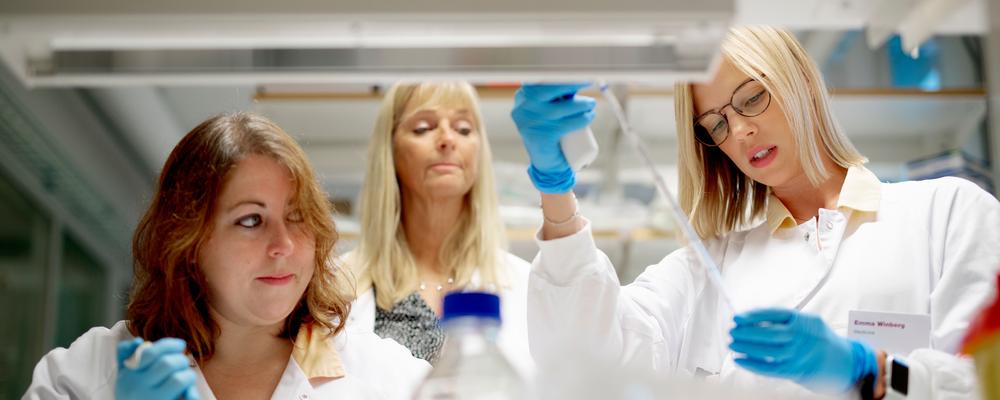
Welcome to the Institute of Medicine, a major hub of health and medical research and education in Sweden.
With nearly 470 employees and 300 PhD students, the Institute of Medicine is the largest department at the University of Gothenburg. Our research and education, from molecule to society, involve close cooperation with health care providers. We work to develop knowledge of the most common illnesses and conditions, such as cardiovascular disease, obesity, asthma and diabetes.

Latest news
Health and medicine EU investment in research on how RNA-based drugs can reach the brain
Health and medicine Antiviral Protein Protects Against Herpes Inflammation in the Brain
Health and medicine Suicides in the construction industry are perceived to occur suddenly
Health and medicine Occupational exposure to particles may increase the risk of chronic kidney disease
Health and medicine Greater attention needs to be paid to malnutrition in the sick and elderly

Our research

Our departments
- Department of Internal Medicine and Clinical Nutrition (External link)
- Department of Molecular and Clinical Medicine (External link)
- Department of Rheumatology and Inflammation (External link)
- School of Public Health and Community Medicine (External link)
Strong research environments and centers
- Wallenberg Laboratory (External link)
- Lundberg Laboratory for Diabetes Research (External link)
- Krefting Research Centre (External link)
- Research Group in Chronic Obstructive Pulmonary Disease (External link)
- Sahlgrenska Osteoporosis Centre (External link)
- Centre for Lifestyle Intervention (External link)
Jobs and career

More about us

- Press office - for journalists (External link)
- For students: Student portal (External link)
- For staff: Intranet (External link)
- For PhD students and supervisors: Doctoral studies on the intranet (External link)
- Akademistatistik – Counselling in statistics and health economics (External link)
- Job opportunities (External link)
Get the Reddit app
R/medicalschooleu.
- View page history
- View page source
Medical School in Sweden
1. introduction, 2. admission and entrance exams/requirements, 3. study rules, 4. exams during medical school and teaching methods, 5. working during medical studies, 6. important websites/social media pertaining to a given country/medical school.
In Sweden there are currently 7 universities with a medical program : University of Gothenburg Karolinska institute (Stockholm), Linköping University, Lund University, Umeå University, Uppsala universitet, Örebro University. In the fall of 2021 Sweden switched over from a 5,5 year program to a 6 year program. Students graduating from the 6-year program will be able to apply for their medical license from the National Board of Health and Welfare (Socialstyrelsen) National Board of Health and Welfare (Socialstyrelsen) upon completion of the program. The program is followed by a 6-12 month long internship (BT), which replaces the 18-month (AT) internship. As of yet no one has graduated from the new program (first graduates expected in spring of 2027). The BT-internship is still being phased in and is available both as an integrated part of residency (ST) or as an internship separate from the residency (similar to AT) for doctors who qualify for a medical license in Sweden, but who have not yet completed their residency.
Pre-requisites : Highschool/gymnasium degree with a passing grade in: Biology 2 , Chemistry 2 , Physics 2 , Mathematics 4 , English 6 (B2 level of english). For more specifics on what these courses entail I have linked the corresponding courses to skolverket.se website, which is all unfortunately in Swedish.
Furthermore you need to have a passing grade for Swedish 3 or SVA 3 (swedish as a second language) or have taken the TISUS (Test in Swedish for University Studies) exam offered twice a year. The Swedish Council for Higher Education (UHR) will evaluate your degree to see what Swedish courses the courses you have taken correspond to as well as translate your grade point average into a Swedish grade point average (meritvärde) on a scale of 10-20. Link to website with conversion of GPA for multiple countries .
If your gymnasium/highschool coursework doesn't match the pre-requisite requirements it’s possible to apply through reel kompetens , this could be used if you have for instance taken college courses that correspond to or exceed the gymnasium coursework.
All applications are sent through antagning.se . You will likely have to upload an officially translated copy as well as an original copy of your degree certificate you can find out more here , and here . Admission is based on either your gymnasium grades, your score on the Swedish Scholastic Aptitude Test (SweSAT/ Högskoleprovet ): usually given twice per year, or the alternative admission at Karolinska Institute ( PIL ).
Usually schools admit 50% based on their SweSAT score and 50% based on gymnasium GPA . There are generally 2 slots of GPA admission categories you can fall into BI - your gymnasium courses are or are judged to be the equivalent of previously stated courses, BII - you have taken extra courses after gymnasium either to meet the prerequisite requirements or to improve your GPA, consequently a higher GPA is generally required in this category.
There is a third GPA category, BF , for persons who have gotten their gymnasium grades through a Swedish Folkhögskola similar to a community college , however, only about 1 or 2 persons per university are generally admitted through this pathway, and you must have a perfect score.
At the Karolinska Institute roughly one third of the spots are reserved for persons admitted through the alternative track PIL, which consists of a three step process:
- Application through the Karolinska Institute website with a valid SweSAT score, generally a score about 1,4-1,5 is required but it fluctuates every year (for admission based only on a SweSAT score a significantly higher score of 1.7-1.8 is generally required i.e. 99th percentile vs. 92nd-94th percentile for PIL)
- Knowledge/Cognitive aptitude test - roughly 40-50 questions that you have 60 mins to answer (generally it’s difficult to complete the entire test and it’s not necessary either), the people in the top third who take the test move on to the next step. You also write an essay about who you are and why you are interested in medicine that will be used as the basis for the interview stage, but is not used in any way to select who moves on to the interview stage.
- Interviews : consists of two 45 min interviews generally one with a researcher PhD and one with an MD. Each interviewer gives a score and together they give a composite score of a maximum of 70, roughly the top third of the interviewed applicants are admitted.
https://utbildning.ki.se/alternativt-urval
Statistics regarding admittance can be found on the Swedish Council for Higher Education’s website .
- Most lectures, especially during the first 2 pre-clinical years are not mandatory, however, as your progress through the program there are generally more mandatory lectures, seminars, and practicals. Mandatory activities must be attended in order to pass the course, if you miss a mandatory event you will have to make it up by doing it at another time when it is offered or doing a makeup assignment. This may be subject to change with the new program, that from what I know will use team based learning (TBL) where you work in small groups. The restructuring of the program may therefore lead to more mandatory lessons.
- All courses are pass/fail and you generally have one semester to pass failed exams from the previous semester before you're barred from moving on. I.e. if you fail an exam semester 5 you can move on to semester 6, but if you have not passed it by the end of semester 6 you will not be able to move on to semester 7.
- All university studies in Sweden are tuition free for EU/EES and Swiss citizens , and may have eligibility to receive a study stipend of roughly 3000 SEK/study month and a heavily subsidized loan (interest rate like 0.1%) of 7000 SEK/study month. More information can be found here . In order to maintain your access to the stipend (as well as full time student status for student housing purposes) you must pass at least 50% of courses per semester.
- If you are from a non-EU/EEA/Switzerland you will likely have to pay an application fee of 900SEK
- If you are from a non-EU/EEA/Switzerland you may have to pay a tuition fee, tuition at for instance Karolinska Institute is 130 000 SEK/semester (i.e. about 13 000€) . However, you may be eligible for certain scholarships through for instance the Swedish Institute .
Teaching methods differ between the different schools, some schools such as Örebro use PBL throughout the entire program (i.e. problem based learning), whereas Karolinska Institutet plans on using TBL (team based learning) in the new 6 year program (you can read more about it here). The first 2-2,5 years are more theoretical, with very little clinical time; it may vary from university to university but primary care is introduced relatively early in the program where students get to practice patient centered consultation (essentially learning active listening). Some schools have a shorter bachelor thesis project at the end of this “pre-clinical” period and others do not.
As for exams and grades, all courses are pass/fail , and you have to pass all parts of the course in order to move on. This means if there are mandatory seminars or you have to attend these and pass the exam in order to get a passing grade for the course. Most courses run the entirety of the semester with a final in the end and possibly several quizzes spaced out over the course along with mandatory seminars. Seminars are essentially just homework assignments, clinical cases or questions about the course topic that are to be answered before the seminar and then will be discussed more deeply in a small group.
If you fail an exam you can retake it as many times as you would like. The catch is that you basically have 1 semester to pass the exam after you fail it if you want to stay with your class . For example if you fail the final exam at the end of semester 2 you have to pass one of the retakes before semester 4 starts (i.e. you have all of semester 3 to pass it). Of course you will have a lot to do during the next semester so failing one exam during the year can lead to failing the following exam for the course you're currently in. So while it’s best not to fail exams, the system is forgiving and the worst that can happen is you get stuck in a term, which could also affect your stipend if you have one.
During the clinical semesters you also have quizzes and exams throughout the course , as well as lectures (although much fewer, and more clinically relevant than during the preclinical years) and seminars. There are many more mandatory hours during the clinical terms, school becomes more like a job with clinical placements from 7:30/8:00-15:30/16:00 . You have to be present, and the doctors will expect that you’ve read up on whatever placement you're at (but you can’t really fail for not being able to answer their questions). This means if you don’t show up to all your placements, you have to contact the clinic to go in at another time to fill the hours in order to pass the course. My experience is that you often have some doctor that’s in charge of you, but if you ask you can tag along with other doctors (if you don’t really click with your assigned doctor). Senior physicians (Överläkare also known as ÖL) know the most, will quiz you , and generally explain things (as long as it’s not too pre-clinical). ST-läkare/residents are more hit or miss (this is usually the doctor you will be assigned to follow), they may be really engaged and want to teach you and quiz you or they’re really stressed out and you're just an annoyance. Interns/AT-läkare can be great sometimes because they were recently students, they get it, and will likely give you attention, unfortunately they don't know as much as the ST or ÖL and hence are less likely to quiz you and help you in that way.
During clinical terms you also have OSCE exams (Objective Structured Clinical Examination) where you have to be able to perform certain clinical skills, and solve clinical cases. You may also have oral exams (these could also occur during pre-clinical terms) where you have an examiner ask you clinical questions and you answer how you would approach the problem, what treatments you would give, possible problems you could run into, etc.
Towards the end of the program you are expect to do a masters thesis/degree project where you do a medical/clinical study and write a rapport about it in a typical scientific fashion with introduction, methods, results, and discussion (as well as an ethics portion). This is, depending on what project you choose, a pretty chill term and a lot of students work extra outside of school as for instance nursing assistants.
During Medical studies in Sweden many people work as a way to make some extra cash, gain experience, or because their stipend/loan has run out (you are only entitled to 12 semesters). Some jobs that are available to medical students.
Nurse assistant/Practical nurse : after 4-5 semesters you can easily get a job as a practical nurse at a hospital or outpatient clinic. This is a good way to get an insight into the daily work of nurses and doctors, and to get clinical exposure. Job duties generally include: general patient care, ECG, iv-cannulation, catheterization, and other practical duties.
Physician assistant (not the same as a PA in the US) : This is not a clearly defined job, and can include anything from giving vaccines to assisting physicians in various tasks including, initial assessment/triaging, basic phone-consultation, and other practical tasks.
Junior doctor : after 9 terms in Sweden you are allowed to work as a junior doctor in Sweden. This is basically the same job that one has before residency, you do typical physician work, but have a supervising physician.
Research assistant : All university clinics have research tied to them, if you’re particularly interested in a certain topic you can try to contact the research group and may even be able to with time get a paid position as a research assistant. This can be a really great merit when applying to residency if it’s in the same field. Job duties may include: collecting data, interpreting data, writing articles, going to research forums, etc.
Läkarstudent.se - this website is all in Swedish, but it has pretty much all you need to know about medical school in Sweden, as well as information about medical studies in Norway, Denmark, Continental Europe, Great Britain, and North America. It’s a really excellent resource for finding out statistics, although some of the information on the website might be getting a bit outdated.
Internetmedicin.se - similar to Uptodate, but not as extensive, and all in Swedish. A website about different medical conditions including background and epidemiology, symptoms, differential diagnoses, treatment, follow up, prognosis, etc. The website also has a lot of the common clinical scores e.g. Child-Pugh, Wells score, Albumin-corrected calcium, etc.
Hypocampus.se - excellent website for medical studies in Sweden a good overview (enough details to get by) on pretty much every topic that you will encounter during your medical studies. The website divides up information into different specialties, quizzes, old exams, and practice questions for the AT-exam.
Hus75.se - particularly helpful at Karolinska Institute because it contains extensive course summaries, old exams, flash cards, and more. This is particularly useful during the pre-clinical terms.
Quizlet.com a lot of people have already made flashcards for course on here so this is a great resource for finding flashcards.
Fass.se excellent website for looking up drugs. Gives you everything from indication for prescribing the drug, to pharmacodynamics, pharmacokinetics, and side effects.
Lakemedelsboken.se similar to Fass and internetmedicin this website has information both on conditions and how to treat them.
https://www.facebook.com/läkareutanhumor facebook group where people share a lot of funny memes about medical school and life in medicine.
By continuing, you agree to our User Agreement and acknowledge that you understand the Privacy Policy .
Enter the 6-digit code from your authenticator app
You’ve set up two-factor authentication for this account.
Enter a 6-digit backup code
Create your username and password.
Reddit is anonymous, so your username is what you’ll go by here. Choose wisely—because once you get a name, you can’t change it.
Reset your password
Enter your email address or username and we’ll send you a link to reset your password
Check your inbox
An email with a link to reset your password was sent to the email address associated with your account
Choose a Reddit account to continue
An official website of the United States government
The .gov means it’s official. Federal government websites often end in .gov or .mil. Before sharing sensitive information, make sure you’re on a federal government site.
The site is secure. The https:// ensures that you are connecting to the official website and that any information you provide is encrypted and transmitted securely.
- Publications
- Account settings
- My Bibliography
- Collections
- Citation manager
Save citation to file
Email citation, add to collections.
- Create a new collection
- Add to an existing collection
Add to My Bibliography
Your saved search, create a file for external citation management software, your rss feed.
- Search in PubMed
- Search in NLM Catalog
- Add to Search
Medical education in Sweden
Affiliation.
- 1 Lund University, Sweden. [email protected]
- PMID: 21942478
- DOI: 10.3109/0142159X.2011.570816
Undergraduate medical education in Sweden has moved from nationally regulated, subject-based courses to programmes integrated either around organ systems or physiological and patho-physiological processes, or organised around basic medical science in conjunction with clinical specialities, with individual profiles at the seven medical schools. The national regulations are restricted to overall academic and professional outcomes. The 5½ year long university undergraduate curriculum is followed by a mandatory 18 months internship, delivered by the County Councils. While quality control and accreditation for the university curriculum is provided by the Swedish National Agency for Higher Education, no such formal control exists for the internship; undergraduate medical education is therefore in conflict with EU directives from 2005. The Government is expected to move towards 6 years long university undergraduate programmes, leading to licence, which will facilitate international mobility of both Swedish and foreign medical students and doctors. Ongoing academic development of undergraduate education is strengthened by the Bologna process. It includes outcome (competence)-based curricula, university Masters level complying with international standards, progression of competence throughout the curriculum, student directed learning, active participation and roles in practical clinical education and a national assessment model to assure professional competence. In the near future, the dimensioning of Swedish undergraduate education is likely to be decided more by international demands and aspects of quality than by national demands for doctors.
PubMed Disclaimer
Similar articles
- Enacting the Carnegie Foundation call for reform of medical school and residency. O'Brien BC, Irby DM. O'Brien BC, et al. Teach Learn Med. 2013;25 Suppl 1:S1-8. doi: 10.1080/10401334.2013.842915. Teach Learn Med. 2013. PMID: 24246101
- Learning outcomes as a tool to assess progression. Harden RM. Harden RM. Med Teach. 2007 Sep;29(7):678-82. doi: 10.1080/01421590701729955. Med Teach. 2007. PMID: 18236255
- Expanding medical student and resident knowledge of health economics, policy, and management. Chuang E. Chuang E. Acad Med. 2011 Nov;86(11):e1. doi: 10.1097/ACM.0b013e318231e122. Acad Med. 2011. PMID: 22030657 No abstract available.
- Health care economics, financing, organization, and delivery. Cox M, Pacala JT, Vercellotti GM, Shea JA. Cox M, et al. Fam Med. 2004 Jan;36 Suppl:S20-30. Fam Med. 2004. PMID: 14961399 Review.
- Introduction of evidence-based medicine in undergraduate medical curriculum for development of professional competencies in medical students. Kotur PF. Kotur PF. Curr Opin Anaesthesiol. 2012 Dec;25(6):719-23. doi: 10.1097/ACO.0b013e32835a1112. Curr Opin Anaesthesiol. 2012. PMID: 23103843 Review.
- A CREATIVE approach to designing a contemporary medical curriculum. Iqbal S, Ahmad S, Taylor D, McIsaac J, H Almigbal T. Iqbal S, et al. MedEdPublish (2016). 2020 Mar 6;9:38. doi: 10.15694/mep.2020.000038.1. eCollection 2020. MedEdPublish (2016). 2020. PMID: 38058859 Free PMC article.
- Inventory and analysis of literature on the organisation of eight European academic medical centres-A scoping review. Cardinaal EMM, Duighuisen HNW, Jeurissen PPT, Berden H. Cardinaal EMM, et al. PLoS One. 2023 Mar 10;18(3):e0282856. doi: 10.1371/journal.pone.0282856. eCollection 2023. PLoS One. 2023. PMID: 36897878 Free PMC article. Review.
- Analysis of Obligatory Involvement of Medical Students in Pandemic Response in the Czech Republic: Competencies, Experiences, and Legal Implications. Michenka P, Fialová L, Šlegerová L, Marx D. Michenka P, et al. Int J Public Health. 2022 Dec 22;67:1605187. doi: 10.3389/ijph.2022.1605187. eCollection 2022. Int J Public Health. 2022. PMID: 36618435 Free PMC article.
- Does medicine run in the family-evidence from three generations of physicians in Sweden: retrospective observational study. Polyakova M, Persson P, Hofmann K, Jena AB. Polyakova M, et al. BMJ. 2020 Dec 16;371:m4453. doi: 10.1136/bmj.m4453. BMJ. 2020. PMID: 33328192 Free PMC article.
- Written Examinations in Swedish Medical Schools: Minds Molded to Medicate? Krachler B, Jerdén L, Lindén C. Krachler B, et al. Am J Lifestyle Med. 2017 Aug 18;13(6):611-614. doi: 10.1177/1559827617724338. eCollection 2019 Nov-Dec. Am J Lifestyle Med. 2017. PMID: 31662728 Free PMC article.
- Search in MeSH
LinkOut - more resources
Full text sources.
- Taylor & Francis
- Citation Manager
NCBI Literature Resources
MeSH PMC Bookshelf Disclaimer
The PubMed wordmark and PubMed logo are registered trademarks of the U.S. Department of Health and Human Services (HHS). Unauthorized use of these marks is strictly prohibited.
Login Apply now
futuredoctor " Studying medicine in Sweden
Universities
Studying medicine in Sweden
Are you interested in studying medicine in Sweden? We would be happy to advise you free of charge about your options for studying medicine in Sweden.
5 reasons to start your medical studies in Sweden
You want Study medicine but not sure if Sweden is the right choice? We present our top 5 advantages of studying medicine in Sweden!
High quality of medical training
Sweden is known for its excellent education system. Many of the universities are among the 100 best universities in the world. The teaching staff are highly motivated and usually also actively involved in research, so that you have access to the latest scientific findings. Supervisors provide close support for students right from the start of their studies.
Practice-orientated learning
Swedish medical universities attach great importance to the practical training of their students. This gives you the opportunity to gain clinical experience in state-of-the-art hospitals and healthcare facilities early on in your studies.
Internationally recognised degree
The medical degree in Sweden is internationally recognised. After your studies, you can either work in Sweden, return to Germany or work in another EU country of your choice.
Cutting-edge research
Sweden is known for its culture of innovation. If you start your medical studies in Sweden, you will have the opportunity to take part in numerous research projects. You can benefit from the excellent quality of medical research and advanced technologies.
No tuition fees
Swedish universities do not charge tuition fees to their Swedish students or to students from the EU!
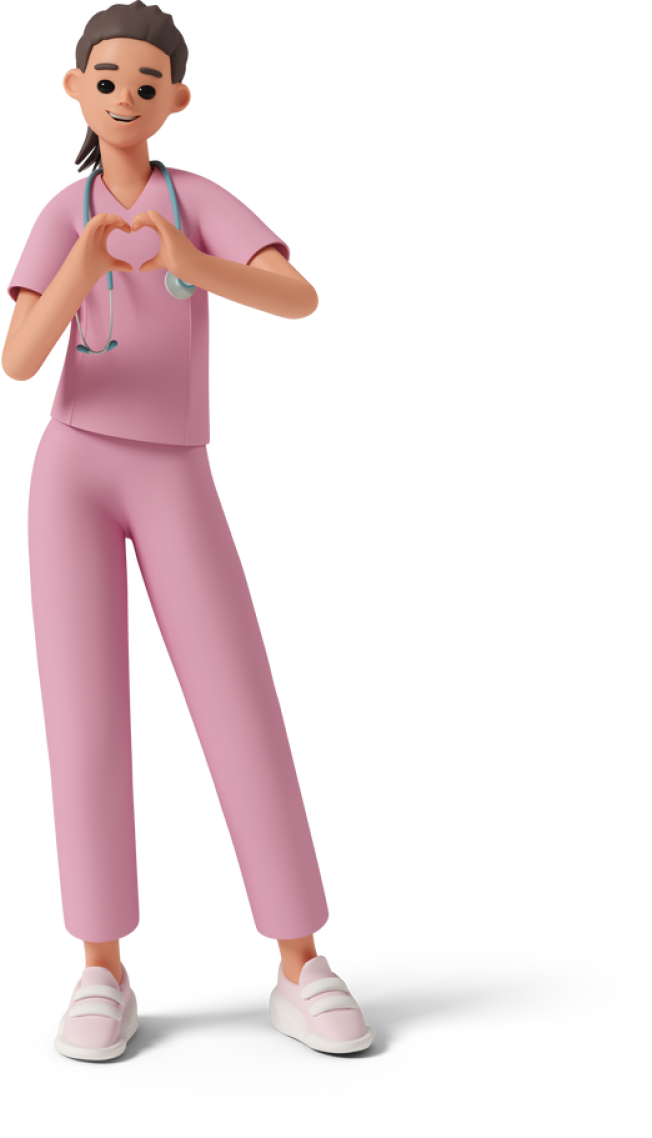
Together for success - futuredoctor and studying medicine abroad
Would you like to Study medicine abroad and are looking for the most suitable university for you and don't really know where to start looking for a suitable country and a good university? futuredoctor will be happy to support you!
In addition to the Student counselling In addition to selecting the university and accompanying you to the desired on-site appointments, futuredoctor also offers support during the application process and preparation for possible aptitude tests and subsequent orientation at the place of study - right through to finding accommodation! Get your Free information pack !
At which universities is it possible to study medicine in Sweden?
The medical universities in Sweden are renowned and their good education is recognised worldwide. Most universities offer their courses in Swedish, but there are also some universities that offer programmes in English. We can help you get an overview!
Lund University
The renowned University of Lund is one of the oldest and most prestigious universities in Scandinavia. It offers a six-year Studying medicine in Swedish which begins in spring and autumn. The principle of PBL (problem-based learning) is often used for the theoretical part of the programme. Reference is made to patient cases and there are numerous group exercises. In addition to Lund, the programme also takes place in Helsingborg and Malmö from time to time.

Uppsala University
Twice a year, medical studies begin in Swedish at Uppsala University. However, a large part of the course literature is in English and in In some cases, entire courses are taught in English held. Teaching is based on problem-, case- and team-based work. It is considered to be very competency-based, which means that it promotes the specific skills of individual students.
Uppsala is one of Sweden's oldest cities and therefore has a long history as a centre of education and culture. It is not without reason that it is one of Sweden's most beautiful cities. The well-preserved medieval buildings, including the impressive Uppsala Cathedral, exude a charm all of their own.
Örebro University School of Medical Sciences
Örebro University is recognised as one of the best young universities in the world. The medical degree programme there is offered twice a year for 65 students each time. Some of the lectures are held in Swedish, partly in English held. There is a particularly strong focus on the practical training of students, which takes place in health centres and hospitals in the Örebro region.
In addition to lectures, student life is a natural part of studying at Örebro University. Numerous student organisations regularly offer sports events or social events. This means you can quickly make friends with your fellow students.
Karolinska Institute Stockholm
The Karolinska Institute is one of the world's leading medical universities. The university's teaching model is interactive, creating a close Contact us between the teaching staff and the students. 160 places are available each year for the medical degree programme. Lectures are held in Swedish.
Stockholm is one of the safest capitals in the world, one of the most innovative cities in Europe and one of the world centres for advances in healthcare.
University of Gothenburg, Sahlgrenska Academy
The University of Gothenburg offers the medical degree programme in Swedish twice a year. The teaching aims to promote students' personal responsibility for acquiring knowledge and reflective and critical thinking. Over the course of twelve semesters, lectures, laboratory work, group exercises and internships provide excellent preparation for the medical profession.
Gothenburg, Sweden's second largest city, is a centre for education, knowledge and development. There is a wide range of culture, sports and nature experiences. Numerous student associations will be happy to help you make friends quickly.
Umea University
The medical programme at the prestigious Umea University begins in the autumn of each year. The modern, newly developed six-year programme is taught in Swedish. A large emphasis is placed on practice-integrated learning (Vil). During your rotations in hospitals, you will always work with supervisors and well-trained medical staff.
The city of Umea is one of the most popular student cities in Sweden due to its high quality of life and many leisure activities. Located in the north, the small town is only 400 kilometres from the Arctic Circle and is surrounded by unique flora and fauna.
What are the requirements for studying medicine in Sweden?
To successfully apply to study medicine in Sweden, you need a general higher education entrance qualification, i.e. your Abitur. A vocational baccalaureate is not sufficient for the application. However, there are also countries where you need a Studying medicine with a specialised baccalaureate can complete.
Your grades in natural sciences such as biology, physics and chemistry should not be lower than grade 2. Your Abitur average makes up two-thirds of the application. The other third is determined by the "Högskoleprovet" study aptitude test. The test assesses your skills in areas such as mathematical problem solving, quantitative comparisons, analysing tables and Swedish and English word and reading comprehension.
If you already have professional experience in a medical profession or internships in a healthcare facility, this can be an advantage for your application.
As the majority of universities offer medical studies in Swedish, you must have good to very good Swedish language skills and be able to prove this with a certificate. If you don't have this yet, but are interested in learning the language, there are numerous institutions and programmes that can support you.
Good English language skills are also important for many Swedish universities. Your IELTS score should be at least 6.5 and no lower than 5.5. For the TOEFL certificate, a score of 90 is required (including 20 in the written part).
How is the medical degree programme structured in Sweden?
How long does it take to study medicine in Sweden? The duration of the medical degree programme, also known as the "Läkarprogrammet" in Sweden, is twelve semesters. The content is similar to the German programme. It is divided into three phases.
Over the first four semesters, you will acquire theoretical knowledge about how the human body is structured and how it functions. The degree programme in this part focuses particularly on the subjects of cell biology, histology, physiology, pharmacology and anatomy. You will also learn to work from a scientific approach. Right at the beginning of the programme, you will have contact with patients and receive training in patient care. As the programme progresses, the scope of the practical placements increases. The theoretical part of the programme consists of lectures, laboratory work, group and simulation exercises and training in clinical skills.
The second part of the training programme deals with diseases, their development, cause and spread. You will learn about various clinical pictures in different medical fields. These include, for example, gynaecology, Surgery skin diseases, neurology or psychiatry. At the same time, you will learn how to recognise and treat these clinical pictures in the clinic.
In the final part of the programme, you will perfect your medical skills and deepen your knowledge of scientific working methods. In the 10th semester you will carry out a final project.
The Swedish medical degree is recognised in Germany and other EU countries.
How much does it cost to study medicine in Sweden?
To give you your Financing medical studies abroad to be able to realise the full potential of the project, careful consideration must be given to the costs involved.
The cost of studying medicine in Sweden is low compared to other EU countries, as Swedish universities do not charge tuition fees to their students. The only study costs are the registration fee for the Swedish selection test. The amount is around 50 euros.
The cost of living in Sweden can be somewhat higher than in Germany. Rental prices vary greatly between the individual cities. In large cities such as Stockholm, Gothenburg or Malmö, they tend to be somewhat higher and range from around 600 to 700 euros. In smaller cities, however, you can also find rooms in shared flats for around 300 euros per month. You should budget around 250 euros per month for food. There are also expenses for leisure activities, transport and study materials. In total, you can expect regular costs of between 800 and 1,500 euros per month.
If you are looking for a Scholarship this will ease the financial burden of financing your studies.
Country and people: Exciting facts about Sweden
- How generous! More than 1 per cent of Sweden's total gross domestic product is spent on donations abroad.
- Mamma Mia! Sweden has a diverse musical landscape that has been internationally recognised for decades. Some of the best-known artists include Roxette, ABBA, Avicii and Ghost.
- Almost the half of Sweden is covered with forests. The beautiful dense forests, which are interrupted by large lakes with small islands, are spread across the entire country and create an unrivalled landscape.
- Scandinavian innovation: The pacemaker was invented in Sweden . The famous cardiologist Dr Ake Senning successfully used the first model on his patient Arne Larsson in 1958 with the support of engineer Rune Elmquist.
What do you need to consider when applying to study medicine in Sweden?
In addition to your certified university certificate, you will also need the "Högskoleprovet" aptitude test to apply to a Swedish medical university. This takes place twice a year in different locations in Sweden, usually in October and April each year. You can also register to take part as a non-Swedish citizen. We will be happy to explain what else you need to know!
The application for the degree programme usually takes place via the website of the respective university. Here are the different Application deadlines to note.
Are you ready to realise your dream of studying medicine in Sweden? Contact us today and start your journey with futuredoctor. We look forward to accompanying you on your journey and working with you to realise your dream of a career in medicine.
Would you like to complete your studies in another northern country? Then take a look at the following countries: Medical studies Estonia , Medical studies Denmark , Medical studies Latvia , Medical studies Finland , Medical studies Lithuania , Medical studies Norway .
Starting signal
What are you waiting for 🎉.
Order your information pack now, find out more about studying medicine abroad and get started as a medical student!
Frequently asked questions
FAQs about studying medicine in Sweden
Why should i start my medical studies in sweden.
Sweden offers a high quality of medical education with many universities among the top 100 worldwide, practice-oriented learning in modern facilities, internationally recognised degrees, opportunities to participate in cutting-edge research and no tuition fees for EU students.
Which universities in Sweden offer a medical degree programme?
Renowned universities include Lund University, Uppsala University, Örebro University School of Medical Sciences, Karolinska Institute Stockholm, University of Gothenburg, Sahlgrenska Academy and Umea University. Some offer programmes in English.
A general university entrance qualification (Abitur), good grades in natural sciences, a successful "Högskoleprovet" study aptitude test, and good English and Swedish language skills are required.
The twelve-semester degree programme is divided into three phases: Basic training, in-depth study of diseases and their treatment, and perfecting medical skills and scientific working methods.
There are no tuition fees for EU students, but there are living costs, which can vary between 800 and 1,500 euros per month depending on the city.
How do I apply to study medicine in Sweden?
Applications are usually made via the website of the respective university. A notarised university certificate and the "Högskoleprovet" study aptitude test are important.
Is support available when choosing a university in Sweden?
Yes, organisations such as futuredoctor offer advice on choosing a university, support in the application process, preparation for aptitude tests and help with orientation at the place of study.
Can I work as a doctor in Sweden after my studies?
Yes, the degree is internationally recognised and enables graduates to work in Sweden as well as in other EU countries.
What are the special features of Swedish universities?
Swedish universities are known for their practice-oriented education, innovative research and commitment to personalised student support.
30 countries for your medical studies
Czech republic.
Pilsen, Brno, Prague, Olomouc

Medical studies in the Czech Republic
Budapest, Pecs, Szeged

Bratislava, Martin, Kashaw

Medical studies Slovakia

Medical studies Croatia

Studying medicine in Latvia

Poznan, Krakow, Szczecin, Wroclaw, Lodz, Lublin, Bialystok

Timisoara, Cluj

Medical studies in Romania
Leuven, Antwerp, Brussels

Marseille, Bordeaux, Paris, Montpellier, Lyon, Grenoble

Great Britain
Oxford, Aberdeen, Edinburgh, Cambridge, Manchester

The Netherlands
Groningen, Maastricht, Amsterdam, Leiden, Utrecht, Rotterdam

Switzerland
Basel, Fribourg, Berne, Geneva, Zurich, Neuchâtel, Lausanne

Vienna, Graz, Linz, Innsbruck, Salzburg, Krems

Bologna, Turin, Rome, Milan, Bari, Naples, Padua, Pavia

Ioannina, Patras, Volos, Komotini

Lund, Uppsala, Örebro, Stockholm, Gothenburg, Umea

Istanbul, Izmir, Ankara

Bergen, Oslo, Tromso

Studying medicine in Norway
Galway, Dublin, Cork, Limerick

Helsinki, Turku, Tampere, Oulu, Kuopio

Barcelona, Madrid, Valencia

Lisbon, Porto, Coimbra, Faro, Braga

Victoria, Msida, Gzira

Copenhagen, Aalborg, Odense, Aarhus

Bosnia-Herzegovina
Sarajevo, Mostar

Varna, Sofia, Pleven, Plovdiv

Studying medicine in Bulgaria

Study medicine this year!
Start winter semester 2024
Still possible at the following universities:
- Charles University Pilsen
- University of Nicosia, Cyprus

Study Abroad Aide
The Best Study Abroad Site
How to Become a Medical Doctor in Sweden (8 Steps)
Nestled in the arctic Scandinavian region of Northern Europe, Sweden is a great country to consider if you plan on studying abroad. Known for its excellent education system, Sweden offers a plethora of opportunities to international students. Endowed with 39 universities of great intellectual distinction, Sweden offers a wide selection of programs in various fields, including medicine. The country is renowned for its state-of-the-art facilities and research opportunities rendering it a popular destination for students seeking a career in the medical field. Additionally, Sweden is known for its focus on innovation, which aligns well with the ever-evolving field of medicine. If you’re considering studying in Sweden , be sure to research the different universities and programs available, and choose the one that best fits your needs and interests. You can also check out the most esteemed medical schools in Sweden to learn more about the application process and requirements.
1. Why Become a Doctor in Sweden?
Sweden, as all Scandinavian countries, is well-known for its high quality of life, which is understandably associated with a good healthcare system, too. Doctors are highly in demand here, and there is a prediction of a shortage of doctors just like in other European countries, due to population growth and increased aging population.
Therefore, heading to Sweden for a medical career can be a very good professional plan. However, there are specific requirements and restrictions worth considering, as this guide to becoming a doctor in Sweden will show.
Find out more about Studying Medicine in Sweden
2. Learning Swedish to fulfill language requirements
Regardless of whether you plan to work in urban or rural areas, you’ll need to speak Swedish to be able to treat your patients, so knowledge of the language is essential. Moreover, in order to pursue medical studies in Sweden, you will need to be fluent in Swedish too. So, the best course of action is to either study the language and then apply to university, or follow a local in-country language course, followed by university studies with a parallel language course to increase your fluency.
Please note that you will not be able to study medicine in Sweden without speaking the language, as programs are all taught in Swedish .
3. Study medicine in Swedish medical schools
Assuming you are fluent in Swedish, the best course of action is to study medicine in Sweden. In order to be accepted to university for medical studies, you’ll need to have graduated high school with a high GPA and have focused on biology and sciences in your classes to become a doctor in Sweden.
As a foreign student, you also need to demonstrate good level of Swedish language knowledge.
Medical school takes five years and a half, after which you will have to complete a year and a half residency/supervised work ahead of becoming licensed as a medical doctor. Sweden has some excellent universities such as Karolinksa Institutet in Stockholm, Uppsala University Faculty of Medicine, Lund and Gothenburg Universities among others, with 500+ years of history and great world rankings for the quality of their teaching.
Learn more about Swedish Medical Schools
4. Required tests and residency
The final step before becoming a doctor in Sweden is passing the proficiency examination Kunskasprovet, which includes theory and practical tests and is 100% in Swedish. This can be taken up to three times to get the best result, but within a timeframe of five years from the first attempt.
Foreign trained doctors can also take this exam to validate their experience and knowledge and allow them to practice in Sweden.
5. Obtaining a medical license
After completing your studies in Sweden or obtaining a validation of your foreign medical studies, passing the Kunskasprovet and doing your residency training, you will be licensed to practice medicine in the country. Then, you are officially a doctor in Sweden.
If you apply as a foreign trained doctor, you will need to submit all supporting documents mentioned below to the National Board of Health and Welfare, in return for which you will get your legitimation.
6. Getting a work visa
As a citizen from the EU/EEA/Switzerland, you won’t be required to get a work visa to work in Sweden, under the freedom of movement agreement for all EU countries. You will, however, need to validate your studies if you’ve been licensed in medicine outside Sweden. If you have studied in Sweden and gone through the test and residency here, then you have no further administrative requirements to be able to practice.
As a non-EU citizen, you normally need to have secured a job offer before you can apply for a work permit. The requirement is also to have a monthly salary of at least $1,480 equivalent before taxes, and that your position includes health insurance, life insurance and social security.
7. Finding Jobs in Hospitals
If you are a EU citizen with a medical license recognized by the Swedish authorities, you have the right to move to Sweden without a job offer and look for work locally. This is great for visiting the places you may want to settle in, as well as going to interviews. Of course, if you have finished your studies in Sweden, you’ll be more familiar with hospitals and clinics you may want to apply for work to, otherwise you can have access to job search agencies or conduct your research online. The key thing to note is that you don’t need to have a job offer to sort out accommodation and live in Sweden.
However, for a non-EU citizen, you need to first secure a job offer and obtain a work permit before you can even enter the country. This may mean that it would be easier to first have a student visa, study in Sweden, and apply for work during your studies – subsequently converting your student visa into a work visa. Otherwise, you’ll need to look for work remotely, which can make it difficult to become a doctor in Sweden.
8. How do Foreign-trained doctors become doctors in Sweden?
There are two types of foreign medical degrees as far as recognition of their accomplishment in Sweden: whether your medical degree is from a EU/EEA country or Switzerland, or whether it is from a non-EU country. Your citizenship has no influence on this process. In both scenarios, you need to prove you are proficient in Swedish.
If your medical degree is from an EU country, your diploma would normally be recognized automatically, but it still needs to be submitted for validation for you to become a doctor in Sweden. An important point to note is that if you have a medical degree from a non-EU country but have since then obtained a medical license in another EU country, this is also recognized automatically, and you don’t have to go through the steps required for foreign-trained doctors outside the EU.
Your application for recognition is sent to the Socialstyrelsen (National Board of Health and Welfare), and you also need to submit proof of living in Sweden, Swedish language proficiency, your Swedish national identity number or your passport, and also proof that you haven’t been banned from the medical profession.
If your medical degree is from a non-EU country, you need to submit your diploma for validation by the Socialstyrelsen. This will be the equivalent of finishing medical school in Sweden. You then need to pass the Kunskasprovet exam just like Swedish medical students would, followed by attending a course on Swedish laws and regulations for foreigners. Regardless of if you have clinical practice experience, you are also required to do a 6-month supervised internship to prove you are comfortable with the Swedish medical practice environment.
Finally, you will need to submit all documents and proofs towards a legitimation which, when received, is the official medical license to work in Sweden as a doctor.
In a nutshell, the path to becoming a medical doctor in Sweden is one that calls for unwavering determination. After passing the required tests and completing the residency, obtaining a medical license, and getting a work visa, you will be ready to practice as a Medical Doctor in Sweden. The journey may be long, but pursuing such a noble career is well worth the time and effort. If you are yet to embark upon the journey of becoming a doctor and considering to apply in Sweden, make sure to check the best public and private universities Sweden has to offer before making a final decision.
I hope that this article was helpful. If you are interested, visit the Europe Scholarships Page.
Leave a Reply Cancel reply
Your email address will not be published. Required fields are marked *
Save my name, email, and website in this browser for the next time I comment.
Courses by Degree
- Undergraduate
- Master’s
Courses by Country
- United Kingdom
Courses by Subject
- Computer Science
- Data Science
- Hospitality and Tourism Management

- Utbildning startsida
- ki.se startsida
Medicine 2023-2024
330 Higher Education Credits, 5.5 years (6 years) To be accepted as an exchange student at Karolinska Institutet you must be enrolled at a higher education institution that has a written exchange agreement with Karolinska Institutet for the specific study programme of interest. Exchange students should be selected and nominated by their home institution, however the final decision on admission is made by Karolinska Institutet.
Find your course or rotation syllabus
To find the syllabus for the course or rotation you are interested in, follow the link to the course syllabus archive above.
You need to enter the course codes to access the syllabuses and they can be found right before the name of the courses or rotations listed on this page, under " Options in English " and " Options in Swedish ".
Options in English
For exchange students without very good command of the Swedish language, the study programme in Medicine offers options in English as presented below.
Please note that the teaching hospitals in Stockholm are currently undergoing structural and reorganizational changes that highly affect the clinical education of medical students at Karolinska Institutet. Unfortunately this also has an impact on our international student exchange programme and therefore the number of study places for incoming exchange students at KI is presently restricted.
General requirements
Specific Requirements
- Three years of study at a study programme in Medicine
- Ability to take medical history and to perform a physical examination of a patient
Other specific requirements may apply as well.
Study options
Exchange students without Swedish language command can apply for the following type of courses/rotations;
- Curricular courses
- Elective courses (see under Curricular courses)
- Clinical rotations; designed to fit the needs of incoming exchange students
- Research-oriented projects; exchange students may also carry out projects on specific conditions
Please note that the study options in English are limited and that a study place cannot be guaranteed.
Courses and clinical rotations are offered throughout the academic year (September - June) at the different teaching hospitals affiliated to Karolinska Institutet, in accordance with the time table below. No rotations are offered during July and August.
Please note that a clinical rotation, or parts of it, may take place at different teaching hospitals in Stockholm. Even if a clinical rotation is offered in English some elements, such as patient communication, might be conducted partly in Swedish.
Time table for clinical rotations 2023 Period 1-4 (subject to change).
| 2023/2024 | Period 1 | Period 2 | Period 3 | Period 4 |
|---|---|---|---|---|
| Dates | 28/8-24/9 | 25/9-22/10 | 23/10-19/11 | 20/11-17/12 |
| Emergency Medicine | x | x | ||
| Gynaecology (4 weeks) | x | |||
| Gynaecology (8 weeks) | x | x | ||
| Hand Surgery | x | |||
| Surgery | x | x | ||
| Inflammatory Diseases | x | |||
| Internal Medicine | x | X | x | x |
| Neurology | ||||
| Oncology | x | x | ||
| Ophthalmology | ||||
| Oto-Rhino-Laryngology | ||||
| Paediatrics | x | |||
| Primary Care | x | |||
| Psychiatry | ||||
| Plastic Surgery | x | x | x | x |
| Urology |
Time table for clinical rotations 2024 Period 5-10 (subject to change).
| 2023/2024 | Period 5 | Period 6 | Period 7 | Period 8 | Period 9 | Period 10 |
|---|---|---|---|---|---|---|
| Dates | 15/1-11/2 | 12/2-10/3 | 11/3-7/4 | 8/4-5/5 | 6/5-2/6 | 3/6-30/6 |
| Emergency Medicine | x | x | ||||
| Gynaecology (4 weeks) | x | x | ||||
| Gynaecology (8 weeks) | x | x | ||||
| Hand Surgery | x | x | ||||
| Surgery | x | x | x | x | ||
| Inflammatory Diseases | x | |||||
| Internal Medicine | x | x | x | x | x | |
| Neurology | x | |||||
| Oncology | x | x | ||||
| Ophthalmology | x | x | ||||
| Oto-Rhino-Laryngology | x | x | ||||
| Paediatrics | x | |||||
| Primary Care | x | |||||
| Psychiatry | x | |||||
| Plastic Surgery | x | x | x | x | x | x |
| Urology | x |
Time table for curricular/elective courses 2023-2024 (subject to change)
| Semester | Autumn 2023 | Spring 2024 |
|---|---|---|
| Surgery | 28/8-19/12 | |
| Reproduction and development (Gyn./Obst./Ped.) | 15/1-26/4 | |
| Community and Home Based Rehabilitation | 29/5-2/6 |
Curricular and elective courses in English (may be subject to change)
All courses are offered full-time and require at least 40 hours of work per week. Courses are given in blocks and hence, a student can only attend one course at a time.
All clinical courses integrate theory and practical clinical training and end with an examination. The performance will be graded on an A-F scale on the basis of the student's fulfillment of the learning outcomes stated in the course syllabus.
2EE108 Clinical medicine - surgery, 27 ECTS credits
Karolinska Institutet offers a unique opportunity to participate as exchange student in a regular full semester course (18 weeks) taught in English integrating both theory and clinics. The course is offered at Karolinska University Hospital, Huddinge/Flemingsberg in the autumn semester up until the Christmas break. Both national and exchange students are admitted and classes are taught in English.
2LK111 Clinical Medicine, Emphasis on Reproduction and Development, 22.5 ECTS credits
A 15 week clinical course including Obstetrics, Gyneacology, Paediatrics (incl. Paediatric Surgery and Paediatric Psychiatry) and Clinical Genetics at Karolinska University Hospital, Solna. Specific requirements: having passed a basic course in medicine and surgery at a study programme in Medicine.
2EE015 Clinical rotation in Obstetrics and Gynaecology, 12 ECTS credits, 10-12 places per course
An eight week course given twice a year. The course ends with an exam. Specific requirements: having passed a basic course in medicine and surgery at a study programme in medicine or equivalent.
1EE021 Community and Home Based Rehabilitation - Cultural Perspectives, 7,5 ECTS
A five week course given every spring semester. This is an interprofessional, international course with teachers and students from different countries and different study backgrounds (e.g. occupational therapy, physiotherapy, nursing, medicine).
Clinical rotations designed for exchange students (may be subject to change)
September - June (no options during July and August).
A clinical rotation consists of clinical work under supervision. A rotation is four weeks long (6 ECTS-credits) and require at least 40 hours of work per week. A student can only attend one rotation at a time.
The rotations are offered in four-week periods throughout the academic year (September-June). See the time-table for a detailed schedule.
In addition to the general requirements, specific requirements may apply. The syllabuses presented below are examples from one of the teaching hospitals where the rotations are offered and specific requirements can be found in each syllabus.
Each rotation ends by an assessment. The type of assessment can be found in each syllabus.
Clinical rotations
- 2EE090 Emergency Medicine
- 2EE044 Gynaecology
- 2EE054 Internal Medicine 1(including subspecialties)
- 2EE043 Neurology
- 2EE098 Oncology
- 2EE039 Ophthalmology
- 2EE033 Oto-rhino-laryngology
- 2EE062 Paediatrics
- 2EE045 Primary Care
- 2EE027 Psychiatry 1
- 2EE036 Surgery 1 (covers the rotations in Hand surgery, Neurosurgery, Plastic surgery and Thoracic surgery)
- 2EE097 Urology
In addition to the clinical rotations described above, KI also offers a few clinical rotations that includes theoretical parts, such as seminars, lectures and a final examination.
2EE073 Inflammatory diseases, 6 ECTS, 10 places
A four week clinical rotation with in-depth studies on chronic inflammation and autoimmunity. The focus will be on rheumatic diseases and other chronic inflammatory diseases with an interdisciplinary approach both in the diagnostic procedures and during treatment and follow up. Theoretical lectures will be mixed with clinical training. The lectures will encompass basic immunology and inflammation with relevance for autoimmune diseases as well as disease characteristics.
Research-oriented projects (4, 8, 12, 16 weeks)
Exchange students in Medicine who want to carry out a research-oriented project at Karolinska Institutet may do so, but would have to make the initial arrangements themselves. The most successful approach is to find a supervisor interested in coaching students and participate in an ongoing research project. The subject area and a supervisor from Karolinska Institutet must be stated in the application form (more information under application procedure below). ECTS grades cannot be granted for projects. The duration of the project must be either 4, 8, 12 or 16 weeks.
- 2EE113 Project for Exchange Students 4 weeks
- 2EE114 Project for Exchange Students 8 weeks
- 2EE115 Project for Exchange Students 12 weeks
- 2EE116 Project for Exchange Students 16 weeks
Options in Swedish
Exchange students with a good command of Swedish or another Scandinavian language are welcome to apply for the courses presented below.
General and Specific Requirements
Exchange students applying for a course or a rotation at Karolinska Institutet have to fulfill general as well as specific course/rotation requirements. Specific course requirements may be required. All students have to fulfill the language requirements:
- A very good command of Swedish, corresponding to a Pass in the Tisus test (Tisus – Test in Swedish for university studies)
In addition to this, exchange students applying for clinical courses/rotations have to fulfill the following general requirements:
Curricular courses in Swedish (Subject to change)
All courses are offered full-time and require at least 40 hours of work per week. No courses run in parallel. A student can attend only one course at a time. All clinical courses integrate theory and practical clinical training. All courses end with an examination. The performance will be graded in accordance with the ECTS grading scale and on the basis of the student's fulfillment of the learning outcomes stated in the course syllabus. All courses start every semester (both autumn and spring).
Exchange students may apply to the following courses offered in Swedish within the regular curriculum from semester 5 in the 5,5 year programme:
- 2LK134 Clinical Medicine, 48 ECTS credits (semester 5 and 6, starting autumn semester only)
- 2LK055 Clinical Medicine - Surgery, 27 ECTS credits (semester 7)
- 2LK063 Clinical Medicine - Neuro, Senses and Psyche (ORL; Ophthalmology; Neurology; Psychiatry), 30 ECTS credits (semester 9)
- 2LK111 Clinical Medicine - Emphasis on reproduction and development (Gynecology/Obstetrics; Pediatrics; Genetics), 22.5 ECTS credits (semester 10)
For more information please visit the programme website . Note that the website is in Swedish.
6 year programme (new curriculum)
Exchange students may apply to the following courses offered in Swedish within the regular curriculum of the new curriculum for the 6 year programme up to semester 5 (only in Swedish).
- 2LA002 Basic Science 3: Anatomy, histology and basic clinical consultation and examination
- 2LA003 Basic Science 4: Neuroscience, neuropharmacology and endoClinical rotationinology
- 2LA004 Basic Science 5: Function and dysfunction of the human body
- 2LK134 Clinical Medicine
Please contact international coordinator Magdalena Palmqvist for further information.
| Curriculum Medicine 2023-2024 | ||
|---|---|---|
| Semester | Course | ECTS Credits |
| 1 | Introductory Course | 6 |
| The Healthy Human 1 | 24 | |
| 2 | The Healthy Human 2 | 30 |
| 3 | The Healthy Human 3 | 16.5 |
| Disease and Illness 1 | 13.5 | |
| 4 | Disease and Illness 2 | 25.5 |
| Integrated preparatory examination | 4.5 | |
| 5 | Clinical Medicine (part 1) | 25.5 |
| Scientific Methodology in Medicine | 4.5 | |
| 6 | Clinical Medicine (part 2) | 22.5 |
| Electives | 7.5 | |
| 7 | Clinical Medicine -Surgery (offered in English every autumn) | 27 |
| Electives | 3 | |
| 8 | Degree project in Medicine | 30 |
| 9 | Clinical medicine - Neuro, Senses and Psyche | 30 |
| 10 | Clinical medicine - Reproduction and development (offered in English every spring) | 22.5 |
| Electives | 7.5 | |
| 11 | Public Health and Environmental Medicine | 12 |
| Integrated final examination | 3 | |
| Electives | 15 | |
Application
Application deadlines.
1 May for the autumn semester end of August to mid-January)
15 October for the spring semester (mid-January to the beginning of June)
Magdalena Palmquist
More information about the programme.
Medical students are expected to take much of the responsibility for their own learning. Teaching methods include group work, seminars, lectures and individual projects, and there is a clear integration of practical and theoretical skills. The teaching is often based on descriptions of patient cases.
The courses within the medical programme are offered on two levels, where semester 1-6 form the basic level and semester 7-11 the advanced level. Both levels include in-depth studies to ensure progression within each level as well as between the levels.
The final seven terms of study take place in teaching hospitals and within primary care. Students take part in day-to-day patient care, supervised at all times by professionally active specialists.
In order to be accepted as an exchange student at KI the applicant must be enrolled at a higher education institution that has a written exchange agreement with KI for the specific study programme of interest. Exchange students should be nominated by their home institution. The final decision on admission is made by KI.
After graduation
After five and a half years of study, students receive their medical degree. This is followed by an internship (AT) for 18-24 months, depending on the location, after which the Swedish licence to practice medicine is granted by the National Board of Health and Welfare (Socialstyrelsen). To receive the specialist qualification another five years of specialist training (ST) or residency is required. There are currently 63 medical specialities in Sweden.
Medical doctors can work in many different sectors, including in-patient and out-patient hospital care, occupational healthcare and primary care, or in private surgeries, research laboratories and industry. Medical doctors also work abroad or for aid organisations. Those who choose to work in one or other part of the healthcare sector follow careers that are decided very much by their chosen medical specialities, such as general practice, surgery, infection diseases or psychiatry. Apart from dealing with patients, medical doctors also often become engaged in teaching, quality development, management and administration. Many medical doctors work wholly or partly with research in order to improve and develop future healthcare provision.
Study Abroad: Tips & Updates
MBBS in Sweden: Top Medical Universities in Sweden, Fees, Requirements, Scholarships

Sweden is a well-known destination for medicine, pharmaceuticals, healthcare and lifesciences. It is home to top pharmaceutical giants who have established a name and reputation worldwide such as Astrazeneca, GlaxoSmithKline, Pfizer, Bayer and more. MBBS in Sweden is recognized not only in India but all around the world which makes it one of the most popular programs of study in Sweden.
MBBS in Sweden for Indian students is a five and half year course extending across 11 semesters which is shorter than other countries. You can study MBBS in Sweden in English and without appearing for any entrance tests for admission. This guide has complete information for you if you are planning to study MBBS in Sweden. Read this guide to get details of MBBS in Sweden requirements, top universities, MBBS in Sweden for Indian students fees, scholarships and more.
|
|
Why Study MBBS in Sweden?
Take a look at why studying MBBS in Sweden for Indian students is worth considering:
- Top universities: Around 8 universities in Sweden ranked in the QS subject rankings 2022 for Medicine and Life Sciences with 4 institutions namely Karolinska Institutet, Uppsala University, Lund University and University of Gothenburg in the top 100 category.
- Ease of admission: Almost every medical university in Sweden has quite a simple admission process and more importantly there is no entrance test required to study MBBS in Sweden.
- Course curriculum: The curriculum of MBBS in Sweden aligns with the US-based curriculum. The course is also acceptable for working in India and approved by the Medical Council of India.
- Affordable programs: MBBS in Sweden for Indian students fees is quite affordable compared to other European countries as well as medical colleges in India.
Top Universities for MBBS in Sweden
MBBS, being one of the most popular programs in Sweden, is provided by almost all top-ranked universities in Sweden. Take a look at the most sought-after universities and QS rankings for MBBS in Sweden for Indian students:
|
|
|
|
| =8 |
|
| 58 |
|
| =80 |
|
| =95 |
|
| =191 |
|
| =238 |
|
| =248 |
|
| =323 |
|
| - |
|
| - |
How to Apply for a MBBS in Sweden?
Your application process starts right from the time you start looking for programs and review the eligibility criteria, deadlines and requirements for admission. Here is a step-by-step guide to help you complete the application process for MBBS in Sweden for international students:
- You can apply for MBBS in Sweden through the centralized application portal universityadmissions.se. You can apply to several programs at different universities using a single application. However, you must rank the programs in order of preference.
- Complete the application and submit it along with the necessary application fee.
- Prepare and attach supporting documents such as transcripts, English language proficiency test scores, personal statement, etc.
- Check the status of your application regularly and reply to any admission offers within the dates specified.
- After receiving your letter of admission, apply for a residence permit to study in Sweden .
Eligibility Criteria for MBBS in Sweden
While looking for universities to study MBBS in Sweden for Indian students, review the eligibility criteria carefully. There can be different MBBS in Sweden requirements for different universities. If you are planning to apply for MBBS in Sweden for international students, these are the basic admission requirements you will have to fulfill:
Previous education
English language proficiency test scores, entrance exam, age criteria, residence permit.
Here we have discussed the general MBBS in Sweden requirements for international students in details:
To apply for MBBS in Sweden, you must have a science background and complete standard 12 with minimum 50% aggregate marks in Biology, Chemistry and Physics.
MBBS in Sweden is taught in English and therefore all international students whose first language is not English must submit English language proficiency test scores for admission or provide alternative proof of English language proficiency. Usually, Swedish universities ask for scores equivalent to English 6 which is equivalent to:
- IELTS score of 6.5 with no band less than 5.5
- TOEFL score of 90 with 20 in written test
To study MBBS in Sweden for Indian students, you must qualify the NEET exam conducted by the National Testing Agency (NTA) in India.
For seeking admission to MBBS in Sweden for Indian students, you must be at least 17 years of age at the time of admission and not more than 25 years.
Studying programs longer than 90 days in Sweden requires international students to apply for a residence permit. It is possible to apply for a residence permit only after getting an admission letter to study MBBS in Sweden.
Suggested: How to get work permit in Sweden after completing studies?
Cost of Studying MBBS in Sweden
The Sweden MBBS fees includes the tuition fees and cost of living. The MBBS in Sweden fee structure is around 85,000-95,000 SEK per year. As international students, you will need 8,568 SEK per month i.e. 102,816 SEK per year.
Take a look at the MBBS in Sweden for Indian students fees:
|
|
|
| Tuition fees | 85,000-95,000 SEK/ year |
| Accommodation | 40,000-55,000 SEK/ year |
| Food | 9,600-10,800 SEK/ year |
| Books and supplies | 9,000 SEK/ year |
| Transportation | 7,200-8,400 SEK/ year |
| Phone and internet | 3,600 SEK/ year |
| Miscellaneous expenses | 18,000 SEK/ year |
Suggested: What is the cost of living in Sweden for international students?
Scholarships for International Students to Study MBBS in Sweden
Now that you have learned about the Sweden MBBS fees, let us explore some scholarships for international students. Scholarships are very important for international students seeking admission to MBBS in Sweden as clearly it is a costly affair. Scholarships can immensely help you in saving money without being worried about repayment.
Discussed below are the top scholarships for MBBS in Sweden for international students:
- Karlstad University Global Scholarship Program
- Lund University Global Scholarship Program
- University of Gothenburg Study Scholarship
- Umea University Scholarship for International Students
- Linkoping International Scholarship
Suggested: Details about scholarships in Sweden for international students
There are several benefits of studying MBBS in Sweden which attracts international students such as no requirement for entrance exams or any donation or capitalization fee. This also makes Sweden MBBS for Indian students quite affordable. Given all the pros of studying in medical colleges in Sweden , it is definitely a prospect worth considering!
Frequently Asked Questions about MBBS in Sweden
Can I study MBBS in Sweden in English?
Yes, universities in Sweden offer MBBS in English.
Is MBBS from Sweden valid in India?
Yes, MBBS from Sweden is approved by the Medical Council of India which makes it valid in India.
How many years does it take to complete MBBS in Sweden for Indian students?
MBBS in Sweden for Indian students can be completed in five and half years i.e. 11 semesters.
How much is the MBBS in Sweden for Indian students fees?
MBBS in Sweden for Indian students fees is 85,000-95,000 SEK per year i.e. 6,90,000–7,70,000 INR per year.
Is Sweden a good place to study Medicine?
Sweden is definitely a good place to study Medicine with several benefits including top universities, affordable tuition fees, easy admission process, top-notch facilities, no entrance exams or capitalization fee and more.

More Topics
Top Premium Admits
Columbia University
Yocketers Admitted
Scholarships granted

Sharwari Bhosale
Cornell University

Atharva Thodge
New York University

Shravan Khunti
University of California, Los Angeles

Prateeka Rawat
Johns Hopkins University

Kaustubh Rai
University of Washington

Neeharika Eddula
University of Pennsylvania

John Harshith
University of Toronto

Meghamala Dash
Duke University

Varun Bhardwaj
University of Michigan, Ann Arbor
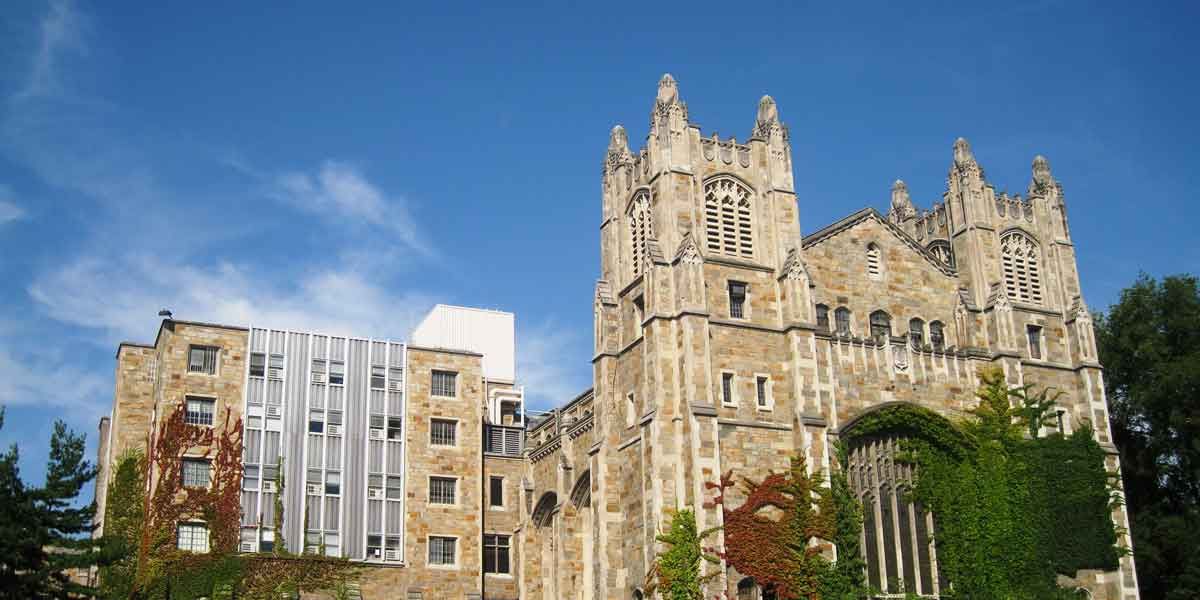
Romil Gupta
University of California, San Diego

Harshit Timmanagoudar
The University of Chicago
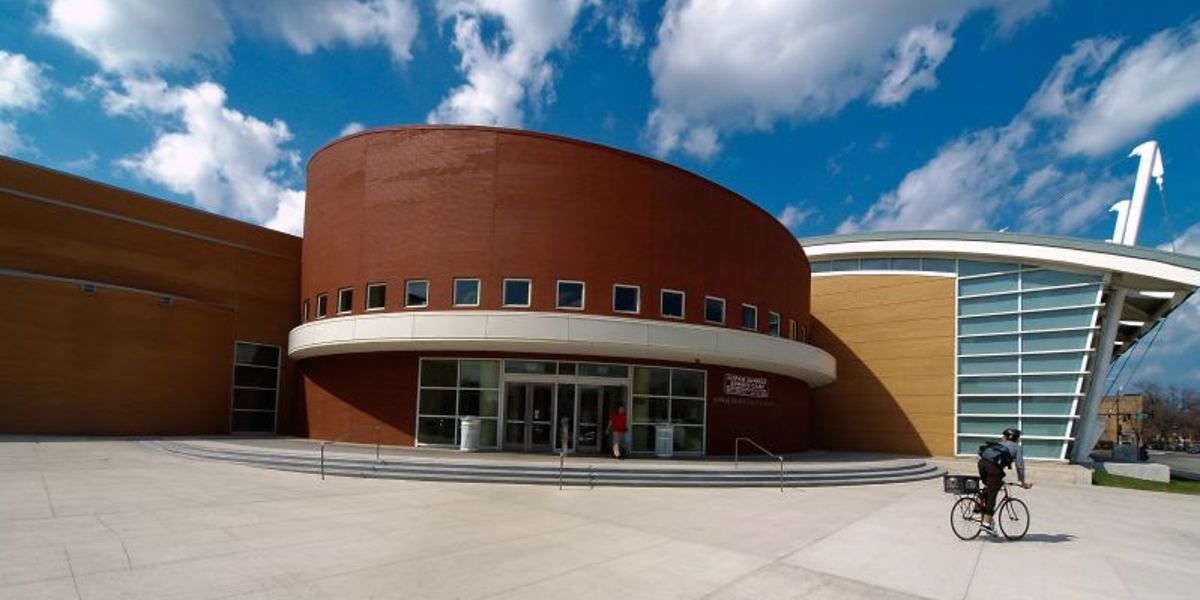
Northwestern University

The University of Edinburgh

Nandita Shekar
Articles you might like
The Indian Dream To Go For Higher Studies Abroad?
Hold all the aces before you depart for your higher studies
What After SAT / ACT Exam? | Things to do for Studies Abroad
Upcoming Events
Scholarships and Other Funding Strategies 2025
June 15th, 7:00 pm IST | 1hr
Fireside chat with Brown uni admitted student
June 21st, 3:00 pm IST | 1hr
Looking for Funding options: Scholarships, RA & TA are the way forward!
July 2nd, 5:00 pm IST | 1hr

- Skip to main content

- All countries /
- All study levels /
- Postgraduate /
- Health and Medicine /
13 Universities in Sweden offering Postgraduate Medicine degrees and courses
More Information
Are you looking for Postgraduate courses in Medicine? Here you can find course providers offering full-time, part-time, online or distance learning options.
You've reached your limit of 10 Favourites
Linnaeus University
Erica foundation, jönköping university foundation.
THE World Ranking: 601

Karolinska Institutet
THE World Ranking: 50
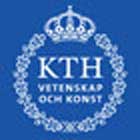
KTH Royal Institute of Technology
THE World Ranking: 97

Sophiahemmet University College

Mälardalen University

Umeå University
THE World Ranking: 401
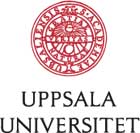
Uppsala University
THE World Ranking: 140

Örebro University

Södertörn University

Stockholm University
THE World Ranking: 185
- Cardiovascular Medical Studies
- Emergency Clinical Care
- Endocrinology (Medicine)
- Epidemiology
- Immunology (Medicine)
- Medical Sciences
- Medical Technology
- Medicine (General)
- Occupational Therapy
- Orthopedics
- Psychotherapy
- Speech Therapy
- Study level:
- Postgraduate
- Graduate Certificates & Diplomas
- Masters Degrees
- Doctoral Degrees
- Study mode:
- Online/Distance
Filter your results
Tell us about you.
- Nationality Select country Select country
- My current qualification is from Select country Yes No Select country Select country
- Current qualification {0} is not applicable for the study level you selected below. Qualification Qualification
- Grade type (only one grade type for your qualification) Grade type Grade type
- My score (current or expected) Please select Please select Please select Please select Please select Please select
Tell us your preferences
- Subject Medicine
- Qualification Postgraduate
- Destination Sweden
- Study options
- Annual tuition fees
Subject areas
Qualification, destination.

Healthcare in Sweden
Swedish healthcare is largely tax-funded. and the overall quality is high..
The Swedish health system performs well in general, life expectancy in the country is high and the general health among the population is good. Reports from the World Health Organization (WHO) and the Organisation for Economic Co-operation and Development (OECD, link to pdf), among others, confirm that healthcare in Sweden provides good access to high-quality care.
One particular example of excellence in Sweden is Karolinska University Hospital , which ranked as the seventh best hospital in the Global Hospital Raiting by Newsweek and Statista in 2024. The list was based on data on 2,400 hospitals across 30 countries.
Ageing population
Just as in many other developed countries, people in Sweden are living longer and longer. The average life span among Swedes is now 84.9 years for women and 81.58 years for men. A positive development, of course, but also one that places demands on the healthcare system and increases the need for elderly care.
About one in five people is 65 or older. That means Sweden proportionally has one of Europe’s largest elderly populations. Statistically, the share of children born per woman in Sweden is 1.52, close to the EU average of 1.53.
Related articles

Ultrasound during pregnancy helps bring down mortality among mothers to be. Photo: Simon Paulin/imagebank.sweden.se

About one in five Swedes is 65 or older. Photo: Ulf Lundin/imagebank.sweden.se
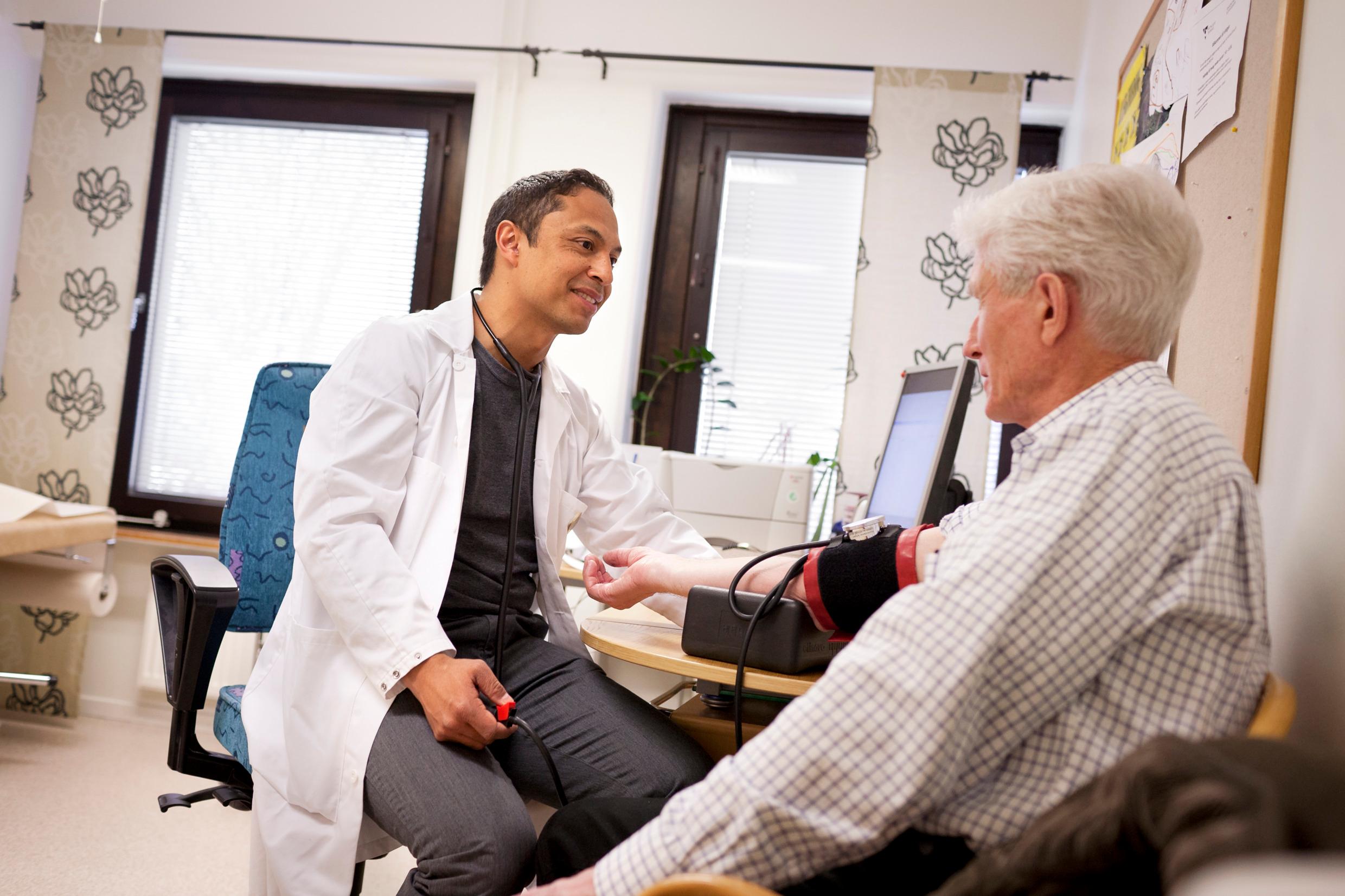
Most healthcare in Sweden is provided in local health centres, where medical staff work together. Photo: Kristin Lidell/imagebank.sweden.se
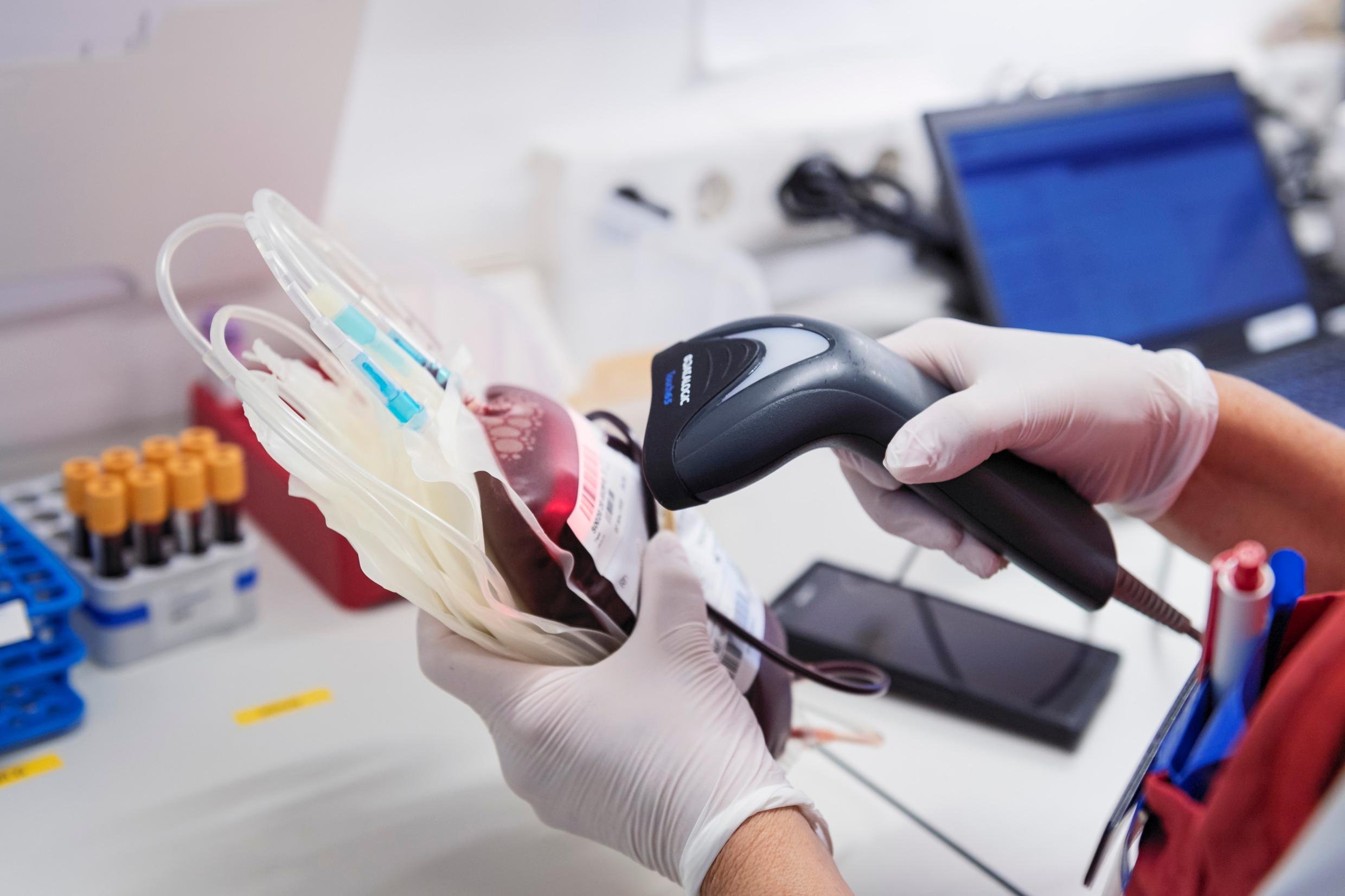
Digitalisation helps make healthcare safer and more efficient. Photo: Naina Helén Jåma/imagebank.sweden.se
Midwives bring down mortality
Mortality is low in Sweden, and there are many reasons why. Peace, hygiene and a growing economy have all played their part. But Sweden has also long seen the importance of having professional midwives. Research shows this has resulted in a sharp reduction in mortality among women in childbirth.
In the beginning of the 20th century, around 250 women died per 100,000 live births, or a rate of 0.25 in 100. Today, maternal mortality in Sweden is among the lowest in the world: around 4 women out of 100,000 die giving birth, with around 3 child deaths out of 1,000 births.
The Swedish Association of Midwives works to develop the professional midwifery skills, promote women’s sexual and reproductive health as well as improve reproductive and perinatal care.
Public spending on healthcare in Sweden
Costs for health and medical care as a percentage of Sweden’s gross domestic product (GDP) is fairly stable and on par with most other European countries. Costs for healthcare in Sweden usually represent around 11 per cent of GDP. The bulk of health and medical costs in Sweden are paid for by regional and municipal taxes. Contributions from the national government are another source of funding, while patient fees cover only a small percentage of costs.
Government spending on health, medical and social care amounted to around 113 billion SEK in 2022.
Public and private healthcare in Sweden
In Sweden, there are both public and private providers of healthcare, and the same regulations apply to both.
When regional councils buy services from private healthcare providers, it is based on a a model where the healthcare is financed by the council but carried out by the private provider.
There are several digital healthcare solutions provided by private actors, such as patient–doctor apps.
Last updated on 12 March 2024
Share with your friends
Other articles you might be interested in

- phone_in_talk
- Study Destinations
- Universities
- Scholarships
- person Sign Up person Log in -->
- Study Abroad
- Application Process
- STUDY ABROAD
- STUDY IN SWEDEN
Medical Residency in Sweden
Apply for the Medical Residency and Speciality Training in Sweden through Standyou....

Standyou Team
Mar 28, 2023 09:17:17
Why Study Medical Residency in Sweden
Sweden has a highly regarded healthcare system and medical education program that is internationally recognized for its high quality. Medical residency training in Sweden provides a solid foundation for a successful medical career.
Exposure to a Diverse Patient Population: As a medical resident in Sweden, you will have the opportunity to work with a diverse patient population, including those from different cultures and backgrounds. This experience can broaden your understanding of healthcare practices and increase your cultural competency.
Innovative Healthcare System: Sweden is known for its innovative healthcare system, which includes a strong emphasis on preventative medicine and a focus on the patient as a whole person. This approach can provide medical residents with a unique perspective on healthcare.
Career Opportunities: Medical residency training in Sweden can provide access to a variety of career opportunities in the healthcare industry. Sweden has a strong demand for healthcare professionals, and a residency in the country can open doors to many career paths.
High Standard of Living: Sweden is consistently ranked as one of the best countries to live in the world. With a high standard of living, excellent healthcare system, and strong social welfare programs, medical residents can enjoy a comfortable and fulfilling lifestyle while pursuing their career goals.
Medical Residency in Netherlands Medical Residency in UAE Medical Residency in Canada Medical Residency in Finland
Medical Residency Specelizations in Sweden
| Anesthesia | 5 |
| Cardiology | 5 |
| Dermatology | 5 |
| Emergency Medicine | 5 |
| Endocrinology | 5 |
| Family Medicine | 5 |
| Gastroenterology | 5 |
| Geriatrics | 5 |
| Hematology | 5 |
| Infectious Diseases | 5 |
| Internal Medicine | 5 |
| Neurology | 5 |
| Neurosurgery | 6 |
| Obstetrics and Gynecology | 5 |
| Oncology | 5 |
| Orthopedic Surgery | 6 |
| Otorhinolaryngology | 5 |
| Pediatrics | 5 |
| Psychiatry | 5 |
| Radiology | 5 |
Medical Residency in France Medical Residency in Spain Medical Residency Training Program in UK Medical Residency in Canada Medical Residency in Malaysia
Application Process of Medical Residency in Sweden for International Medical Graduates
Check Eligibility: International medical graduates must first ensure they meet the eligibility criteria for medical residency in Sweden. The requirements may vary depending on the specialty and the region where the residency is offered. Applicants should check with the relevant authorities to determine eligibility.
Apply for a Swedish Medical License: International medical graduates who do not hold a Swedish medical license must apply for one. This process can take several months and involves submitting documentation, including proof of medical education and training, language proficiency, and other relevant information.
Obtain a Personnummer: International medical graduates who plan to stay in Sweden for more than 12 months must obtain a personnummer, which is a unique identification number used for various purposes, including accessing healthcare services.
Search and Apply for Residency Programs: International medical graduates can search for residency programs on the Swedish Medical Association website or other relevant websites. They should apply for the residency programs they are interested in and meet the eligibility criteria for.
Submit Application: The application process may involve submitting documents such as transcripts, CV, and other relevant documentation to the residency program's admission office. Applicants should ensure they have all the required documents before submitting their application.
Attend Interviews: Shortlisted applicants may be invited for interviews. The interview process may vary depending on the residency program.
Wait for the Outcome: The final decision on acceptance into the residency program is made by the program's admission committee. Applicants should wait for the outcome and may receive an acceptance or rejection letter.
Obtain a Work Permit: International medical graduates who are accepted into a residency program in Sweden must obtain a work permit. This process can take several months and involves submitting documentation, including a valid job offer from the residency program.
Medical Residency in Switzerland Medical Residency in USA Medical Residency in Italy
Hospitals and Universities offering Medical Residency in Sweden
| Karolinska University Hospital | Anesthesiology, Cardiology, Dermatology, Emergency Medicine, Endocrinology, Gastroenterology, Geriatrics, Hematology, Infectious Diseases, Internal Medicine, Neurology, Neurosurgery, Obstetrics and Gynecology, Oncology, Orthopedic Surgery, Otorhinolaryngology, Pediatrics, Psychiatry, Radiology |
| Sahlgrenska University Hospital | Anesthesiology, Cardiology, Dermatology, Emergency Medicine, Endocrinology, Gastroenterology, Geriatrics, Hematology, Infectious Diseases, Internal Medicine, Neurology, Obstetrics and Gynecology, Oncology, Orthopedic Surgery, Otorhinolaryngology, Pediatrics, Psychiatry, Radiology |
| Lund University Hospital | Anesthesiology, Cardiology, Dermatology, Emergency Medicine, Endocrinology, Gastroenterology, Geriatrics, Hematology, Infectious Diseases, Internal Medicine, Neurology, Obstetrics and Gynecology, Oncology, Orthopedic Surgery, Otorhinolaryngology, Pediatrics, Psychiatry, Radiology |
| Uppsala University Hospital | Anesthesiology, Cardiology, Dermatology, Emergency Medicine, Endocrinology, Gastroenterology, Geriatrics, Hematology, Infectious Diseases, Internal Medicine, Neurology, Obstetrics and Gynecology, Oncology, Orthopedic Surgery, Otorhinolaryngology, Pediatrics, Psychiatry, Radiology |
| Linköping University Hospital | Anesthesiology, Cardiology, Dermatology, Emergency Medicine, Endocrinology, Gastroenterology, Geriatrics, Hematology, Infectious Diseases, Internal Medicine, Neurology, Obstetrics and Gynecology, Oncology, Orthopedic Surgery, Otorhinolaryngology, Pediatrics, Psychiatry, Radiology |
| Karlstad Central Hospital | Anesthesiology, Emergency Medicine, Gastroenterology, Hematology, Infectious Diseases, Internal Medicine, Pediatrics, Radiology |
| Sundsvall Hospital | Anesthesiology, Emergency Medicine, Gastroenterology, Hematology, Infectious Diseases, Internal Medicine, Neurology, Pediatrics, Psychiatry, Radiology |
| Skåne University Hospital | Anesthesiology, Cardiology, Dermatology, Emergency Medicine, Endocrinology, Gastroenterology, Geriatrics, Hematology, Infectious Diseases, Internal Medicine, Neurology, Obstetrics and Gynecology, Oncology, Orthopedic Surgery, Otorhinolaryngology, Pediatrics, Psychiatry, Radiology |
| Västervik Hospital | Anesthesiology, Emergency Medicine, Gastroenterology, Hematology, Infectious Diseases, Internal Medicine, Pediatrics, Radiology |
| Västerås Hospital | Anesthesiology, Emergency Medicine, Gastroenterology, Hematology, Infectious Diseases, Internal Medicine, Pediatrics, Radiology |
| Örebro University Hospital | Anesthesiology, Cardiology, Dermatology, Emergency Medicine, Endocrinology, Gastroenterology, Geriatrics, Hematology, Infectious Diseases, Internal Medicine, Neurology, Obstetrics and Gynecology, Oncology, Orthopedic Surgery, Otorhinolaryngology, Pediatrics, Psychiatry, Radiology |
| Malmö Hospital | Anesthesiology, Cardiology, Dermatology, Emergency Medicine, Endocrinology, Gastroenterology, Geriatrics, Hematology, Infectious Diseases, Internal Medicine, Neurology, Obstetrics and Gynecology, Oncology, Orthopedic Surgery, Otorhinolaryngology, Pediatrics, Psychiatry, Radiology |
| Östersund Hospital | Anesthesiology, Emergency Medicine, Gastroenterology, Hematology, |
Medical Residency in Kuwait Medical Residency in Finland
Swedish National Board of Health and Welfare (Socialstyrelsen)
The Swedish National Board of Health and Welfare, also known as Socialstyrelsen, is a government agency responsible for overseeing and regulating healthcare in Sweden. It is under the jurisdiction of the Swedish Ministry of Health and Social Affairs.
The primary responsibilities of the Swedish National Board of Health and Welfare include:
Developing and enforcing healthcare policies and regulations
Monitoring and evaluating the quality of healthcare services in Sweden
Conducting research on healthcare issues and publishing reports and recommendations
Providing guidance and support to healthcare professionals and organizations
Licensing and registering healthcare professionals and facilities
Maintaining a national patient registry to monitor and track patient health outcomes
The Swedish National Board of Health and Welfare is also responsible for managing the Swedish Healthcare Direct (1177) service, which provides healthcare advice and information to the public via telephone, online chat, and email.
If you are a non-Swedish citizen and want to practice medicine in Sweden, you must first pass a two-part medical knowledge test in Swedish. The test is called "Svenska läkarlegitimationsexamen" and is administered by the National Board of Health and Welfare (Socialstyrelsen).
Here is some general information about the two-part medical knowledge test:
Part 1: This is a multiple-choice test that covers general medical knowledge and principles, such as anatomy, physiology, pathology, and pharmacology. The test is computer-based and is administered at various test centers throughout Sweden. You must achieve a passing score of at least 60% to move on to Part 2.
Part 2: This is a practical test that assesses your clinical skills and knowledge. It is divided into four parts: clinical examination, medical communication, differential diagnosis, and medical management. You will be assessed by a team of examiners, and the test takes place at various hospitals throughout Sweden.
To prepare for the test, you may want to consider taking language classes to improve your Swedish language proficiency. You can also review medical textbooks and resources in Swedish to help you prepare for the test. Additionally, you may want to consider taking a review course or working with a tutor to help you prepare for the test.
Overall, passing the two-part medical knowledge test is a crucial step in obtaining a Swedish medical license and practicing medicine in Sweden.
Medical Residency in Australia
Swedish Medical Legislation
The Pharmaceutical Act (Läkemedelslagen): This law regulates the production, marketing, and use of medicines in Sweden. It sets out requirements for the safety, efficacy, and quality of medicines, and establishes the Swedish Medical Products Agency as the regulatory body responsible for overseeing the approval and monitoring of medicines.
The Medical Devices Act (Lagen om medicintekniska produkter): This law regulates the production, marketing, and use of medical devices in Sweden. It sets out requirements for the safety, performance, and quality of medical devices, and establishes the Swedish Medical Products Agency as the regulatory body responsible for overseeing the approval and monitoring of medical devices.
The Patient Data Act (Patientdatalagen): This law governs the collection, use, and storage of patient data in Sweden. It sets out strict requirements for the protection of patient privacy and confidentiality, and establishes the Swedish Data Protection Authority as the regulatory body responsible for overseeing compliance with the law.
The Health and Medical Services Act (Hälso- och sjukvårdslagen): This law sets out the rights and responsibilities of patients and healthcare providers in Sweden. It establishes principles such as patient-centered care, equitable access to healthcare services, and the responsibility of healthcare providers to provide safe and effective care.
Medical Residency in Ireland
Documents Required for the Medical Residency in Sweden
Medical Degree: You must have a recognized medical degree from your country of origin or any other country.
Medical License: You must hold a valid medical license from the country where you have completed your medical studies.
Curriculum Vitae (CV): A detailed CV that includes your education, work experience, publications, and research experience.
Personal statement: A personal statement explaining your interest in the specific medical residency program and how it aligns with your career goals.
Letters of Recommendation: You will need to provide at least three letters of recommendation from physicians who have supervised your clinical work.
Language Proficiency: You will need to demonstrate proficiency in the Swedish or English language, depending on the program's language requirements.
Identification: A copy of your passport or any other government-issued ID.
Academic transcripts: You will need to provide official transcripts from your medical school and any postgraduate training you have completed.
Certificates: Copies of certificates for any medical training or courses completed.
Cost of Medical Residency in Sweden
There is usually no direct cost for medical residency training in Sweden as the training is primarily funded by the Swedish government. However, residents are responsible for their own living expenses, including accommodation, food, transportation, and personal expenses.
The cost of living in Sweden can be relatively high compared to other countries, especially in larger cities. The average monthly cost of living for a single person in Sweden ranges from 8000 to 12,000 SEK (approximately 900 to 1350 USD) depending on the location and lifestyle.
Salary of Medical Resident Doctors in Sweden
Monthly salary for medical resident doctors in their first year of training is SEK 34,100 (approximately $3,850 USD) before taxes. The salary increases each year, and in their sixth and final year of training, the minimum monthly salary is SEK 40,600 (approximately $4,585 USD) before taxes.
Medical Residency in New Zealand Medical Residency in Belgium Medical Residency in Qatar
Visa for Medical Residency in Sweden
To apply for a work permit for medical residency in Sweden, you will typically need to provide the following:
A valid passport
A letter of employment from the healthcare provider offering you the medical residency position
Documentation of your qualifications and education
Proof of language proficiency in Swedish or English
Proof of financial means to support yourself during your stay in Sweden

Please Enable Javascript to View This Page.
Want to skip Verification for now ? Click here
Book your Profile Evaluation to Study Abroad in Public Universities
Get a guaranteed scholarship of minimum 20% to study abroad.

Sweden: Healthcare Workforce Education and Training
Share of foreign-trained doctors, 2021: 30.2% Medical graduates per 100,000 population, 2021: 14.2 Practicing nurses per 1,000 population, 2021: 10.7 Share of foreign-trained nurses, 2021: 3.5% Nursing graduates per 100,000 population, 2021: 44.1
Source: OECD (2023), Health at a Glance 2023: OECD Indicators , OECD Publishing, Paris, doi.org/10.1787/7a7afb35-en.
“Entering tertiary education often means costs for students and their families, in terms of tuition fees, foregone earnings and living expenses, although they may also receive financial support to help them afford it. However, public policies on tuition fees and financial support for students differ greatly across countries. In Sweden, no tuition fees are combined with high levels of financial support for students. Public institutions do not charge tuition fees for national students.”
Source: OECD (2022), “Sweden” , in Education at a Glance 2022: OECD Indicators, OECD Publishing, Paris. doi.org/10.1787/dc0f9e92-en.
“OECD countries have different approaches to providing financial support to students enrolled in tertiary education, but in general countries with the highest level of public transfers to the private sector are those that also tend to have the highest tuition fees. In six OECD countries and other participants, including Sweden, at least 80% of national students receive public financial support in the form of student loans, scholarships or grants. In another six countries and other participants, less than 25% of students receive financial support. In these countries, public financial support is targeted on selected groups of students, such as those from socio-economically disadvantaged families.”
“In Finland and Sweden, students from outside the EU/EEA are charged about USD 13,000 per year for master’s programmes in public institutions, while no tuition fees are applied to national (or EU/EEA) students.”
Source: OECD (2022), Education at a Glance 2022: OECD Indicators , OECD Publishing, Paris, doi.org/10.1787/3197152b-en.
“Tuition fees for short-cycle tertiary programmes in public institutions are generally lower than for bachelor’s programmes. They are free of charge in Denmark, France, Spain, Sweden and Türkiye and amount to less than half the tuition fees for bachelor’s programmes in Chile and the United States, where they cost less than USD 3,800 per year.”
“The 5½ year undergraduate medical programme in Sweden is offered by seven universities, one of which is only starting in 2011. In all, approximately 1.570 students are accepted yearly. This should be related to a population of approximately 9 millions.”
Source: Stefan Lindgren, Thomas Brännström, Eric Hanse, Torbjörn Ledin, Gunnar Nilsson, Stellan Sandler, Ulf Tidefelt & Jakob Donnér (2011), Medical education in Sweden , Medical Teacher, 33:10, 798-803, DOI: 10.3109/0142159X.2011.570816 .
“Sweden has successfully increased the scope of practice of nurses in primary care, for example by setting up nurse consultations in lieu of GP consultations, helping to address the low supply of GPs and allowing registered nurses with additional training and sufficient experience to prescribe some medicines. In addition, some specialist nurses provide care to diabetes patients and support them in self-managing their condition. In hospital, registered nurses with specific expertise in geriatrics are able to assess the health and long-term care needs of older people arriving in emergency departments. “However, the number of such advanced practice nurses and specialist nurses remains limited, and the number of new graduates with an advanced nursing degree and specialty training has fallen since 2005. In January 2019, the government announced a renewed effort to train more advanced practice and specialist nurses to improve timely access to care.”
Source: OECD/European Observatory on Health Systems and Policies (2019), Sweden: Country Health Profile 2019 , State of Health in the EU, OECD Publishing, Paris/European Observatory on Health Systems and Policies, Brussels.
Swedish Health System Overview Health System Rankings Health System Outcomes Health System Coverage Costs for Consumers Health System Expenditures Health System Financing Preventive Healthcare
Healthcare Workers Health System Physical Resources and Utilization Long-Term Services and Supports Healthcare Workforce Education and Training Pharmaceuticals
Political System Economic System Population Demographics People With Disabilities Aging Social Determinants and Health Equity Health System History Reforms and Challenges
World Health Systems Facts is a project of the Real Reporting Foundation . We provide reliable statistics and other data from authoritative sources regarding health systems and policies in the US and sixteen other nations.
Page last updated April 24, 2024 by Doug McVay, Editor.
We value your privacy
Privacy overview.
| Cookie | Duration | Description |
|---|---|---|
| _GRECAPTCHA | 5 months 27 days | This cookie is set by Google. In addition to certain standard Google cookies, reCAPTCHA sets a necessary cookie (_GRECAPTCHA) when executed for the purpose of providing its risk analysis. |
| cookielawinfo-checkbox-advertisement | 1 year | The cookie is set by GDPR cookie consent to record the user consent for the cookies in the category "Advertisement". |
| cookielawinfo-checkbox-analytics | 11 months | This cookie is set by GDPR Cookie Consent plugin. The cookie is used to store the user consent for the cookies in the category "Analytics". |
| cookielawinfo-checkbox-functional | 11 months | The cookie is set by GDPR cookie consent to record the user consent for the cookies in the category "Functional". |
| cookielawinfo-checkbox-necessary | 11 months | This cookie is set by GDPR Cookie Consent plugin. The cookies is used to store the user consent for the cookies in the category "Necessary". |
| cookielawinfo-checkbox-others | 11 months | This cookie is set by GDPR Cookie Consent plugin. The cookie is used to store the user consent for the cookies in the category "Other. |
| cookielawinfo-checkbox-performance | 11 months | This cookie is set by GDPR Cookie Consent plugin. The cookie is used to store the user consent for the cookies in the category "Performance". |
| viewed_cookie_policy | 11 months | The cookie is set by the GDPR Cookie Consent plugin and is used to store whether or not user has consented to the use of cookies. It does not store any personal data. |
| Cookie | Duration | Description |
|---|---|---|
| _ga | 2 years | This cookie is installed by Google Analytics. The cookie is used to calculate visitor, session, campaign data and keep track of site usage for the site's analytics report. The cookies store information anonymously and assign a randomly generated number to identify unique visitors. |
| _gat_UA-71314304-2 | 1 minute | This is a pattern type cookie set by Google Analytics, where the pattern element on the name contains the unique identity number of the account or website it relates to. It appears to be a variation of the _gat cookie which is used to limit the amount of data recorded by Google on high traffic volume websites. |
| _gcl_au | 3 months | This cookie is used by Google Analytics to understand user interaction with the website. |
| _gid | 1 day | This cookie is installed by Google Analytics. The cookie is used to store information of how visitors use a website and helps in creating an analytics report of how the website is doing. The data collected including the number visitors, the source where they have come from, and the pages visted in an anonymous form. |
| Cookie | Duration | Description |
|---|---|---|
| IDE | 1 year 24 days | Used by Google DoubleClick and stores information about how the user uses the website and any other advertisement before visiting the website. This is used to present users with ads that are relevant to them according to the user profile. |
| test_cookie | 15 minutes | This cookie is set by doubleclick.net. The purpose of the cookie is to determine if the user's browser supports cookies. |

IMAGES
VIDEO
COMMENTS
Karolinska Institutet is one of the world's foremost medical universities. KI accounts for the single largest share of all academic medical research conducted in Sweden and offers the country's broadest range of education in medicine and health sciences.
Below is the list of 31 best universities for Medicine in Sweden ranked based on their research performance: a graph of 20.1M citations received by 579K academic papers made by these universities was used to calculate ratings and create the top.
Medical schools in Sweden are also compliant with the Bologna process and European Credit Transfer and Accumulation System, which means the medical degree they grant is valid in any European country.
Medical Schools in Sweden for International Students. 1. Karolinska Institutet. Karolinska Institutet is one of the world's foremost medical universities and accounts for the single largest share of all academic medical research conducted in Sweden. KI also offers the country's broadest range of education in medicine and health sciences ...
Karolinska Institutet is a one-faculty university dedicated to the health and life sciences, with the widest range of medical education in Sweden. We offer education entirely in English, with an international focus. There are also extensive opportunities for international exchange.
Sweden and Scandinavia have traditionally led the way in sanitation and health care. With its large investments and long-standing cooperation with education, research and industry, the Swedish healthcare system continues to be a role model for many countries.
Bachelor's & master's studies Karolinska Institutet offer the widest range of medical education in Sweden and ranks among the top universities in the world.
These are the top universities in Sweden for clinical medicine, based on their reputation and research in the field.
Welcome to the Institute of Medicine, a major hub of health and medical research and education in Sweden. With nearly 470 employees and 300 PhD students, the Institute of Medicine is the largest department at the University of Gothenburg. Our research and education, from molecule to society, involve close cooperation with health care providers ...
Undergraduate medical education in Sweden has moved from nationally regulated, subject-. based courses to programmes integrated either around organs or physiological and. pathophysiological processes, or organized around basic medical science in conjunction with. clinical specialities, with individual profiles at the seven medical schools.
In Sweden, the medical curriculum, which is also known as curriculum medicine, is just like any other medical curriculum in the world with a total duration or period of six whole years of studying and mastering education in the field of medicine. Studying medicine will be difficult especially for those who are unprepared when they enrolled in ...
In Sweden there are currently 7 universities with a medical program: University of Gothenburg Karolinska institute (Stockholm), Linköping University, Lund University, Umeå University, Uppsala universitet, Örebro University. In the fall of 2021 Sweden switched over from a 5,5 year program to a 6 year program. Students graduating from the 6 ...
Abstract. Undergraduate medical education in Sweden has moved from nationally regulated, subject-based courses to programmes integrated either around organ systems or physiological and patho-physiological processes, or organised around basic medical science in conjunction with clinical specialities, with individual profiles at the seven medical ...
Sweden has a long tradition of providing free and accessible health care services to its citizens. Today, medical education in Sweden is free for all students who have completed high school and is recognized at the international level. Swedish medical schools are among the best in Europe and all of Scandinavia.
Studying medicine in Sweden If you start your medical studies in Sweden, you can look forward to an excellent education at a renowned university. Sweden enjoys a very good reputation for many reasons: equality, a high quality of life, excellent education and a breathtaking diversity of nature with vast forests, clear lakes, picturesque coastlines and the fascinating polar regions characterise ...
How to Become a Medical Doctor in Sweden (8 Steps) Nestled in the arctic Scandinavian region of Northern Europe, Sweden is a great country to consider if you plan on studying abroad. Known for its excellent education system, Sweden offers a plethora of opportunities to international students. Endowed with 39 universities of great intellectual distinction, Sweden offers a wide selection of ...
There are currently 63 medical specialities in Sweden. Medical doctors can work in many different sectors, including in-patient and out-patient hospital care, occupational healthcare and primary care, or in private surgeries, research laboratories and industry. Medical doctors also work abroad or for aid organisations.
Looking for information on MBBS in Sweden? We at Yocket have prepared a guide with complete details of MBBS in Sweden for Indian students, popular universities, eligibility criteria, MBBS in Sweden fee structure, scholarships & more!
13 Universities in Sweden offering postgraduate Medicine degrees and courses. Plan your studies abroad now.
Abstract. Undergraduate medical education in Sweden has moved from nationally regulated, subject-based courses to programmes integrated either around organ systems or physiological and patho-physiological processes, or organised around basic medical science in conjunction with clinical specialities, with individual profiles at the seven medical ...
Healthcare in Sweden is decentralised - responsibility lies with the regional councils and, in some cases, local councils or municipal governments. Sweden is divided into 290 municipalities and 21 regional councils. The decentralisation of healthcare is regulated by the Health and Medical Service Act (link in Swedish).
Why Study Medical Residency in Sweden Sweden has a highly regarded healthcare system and medical education program that is internationally recognized for its high quality. Medical residency training in Sweden provides a solid foundation for a successful medical career.
Sweden: Healthcare Workforce Education and Training. World Health Systems Facts provides factual data on health systems and policies.